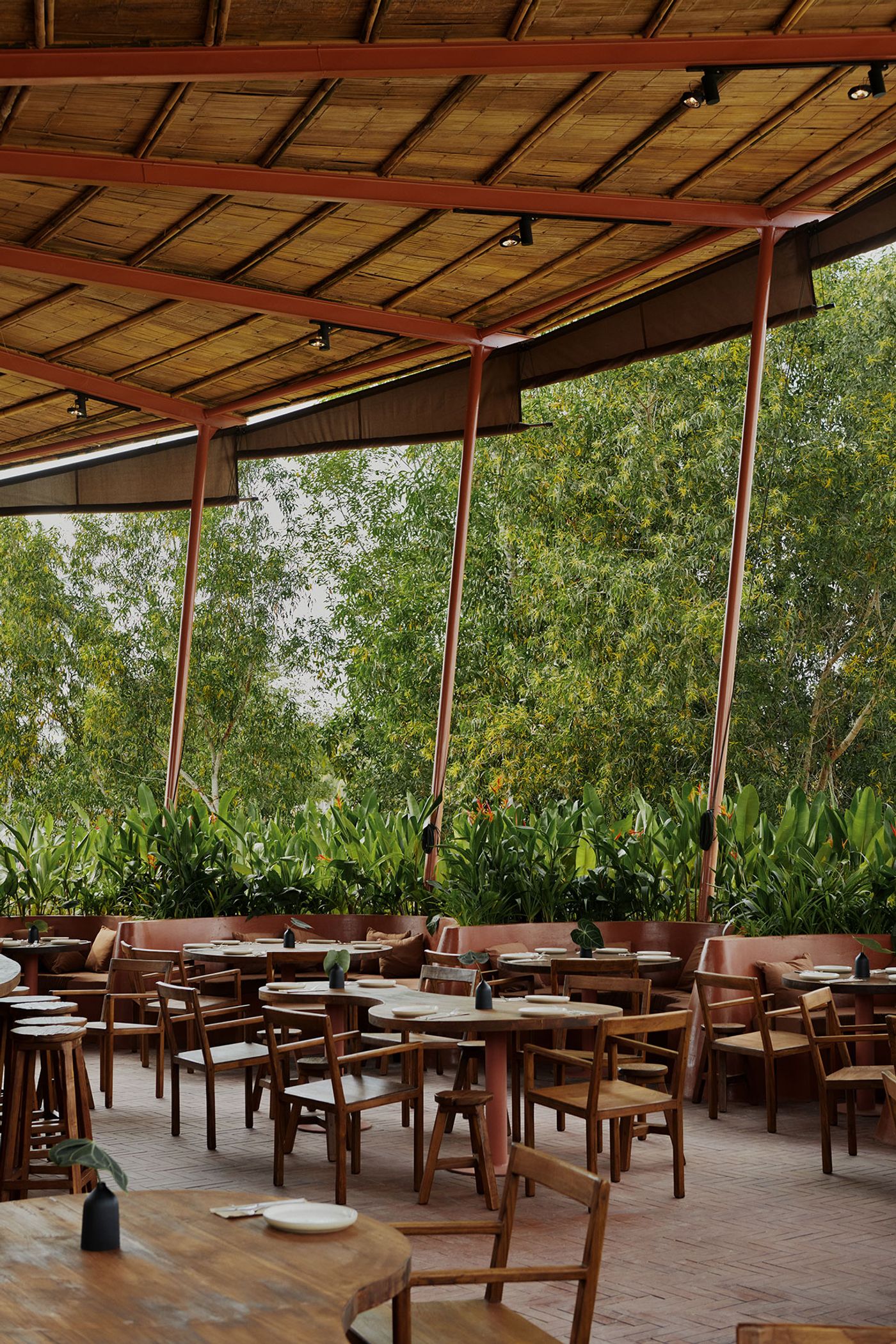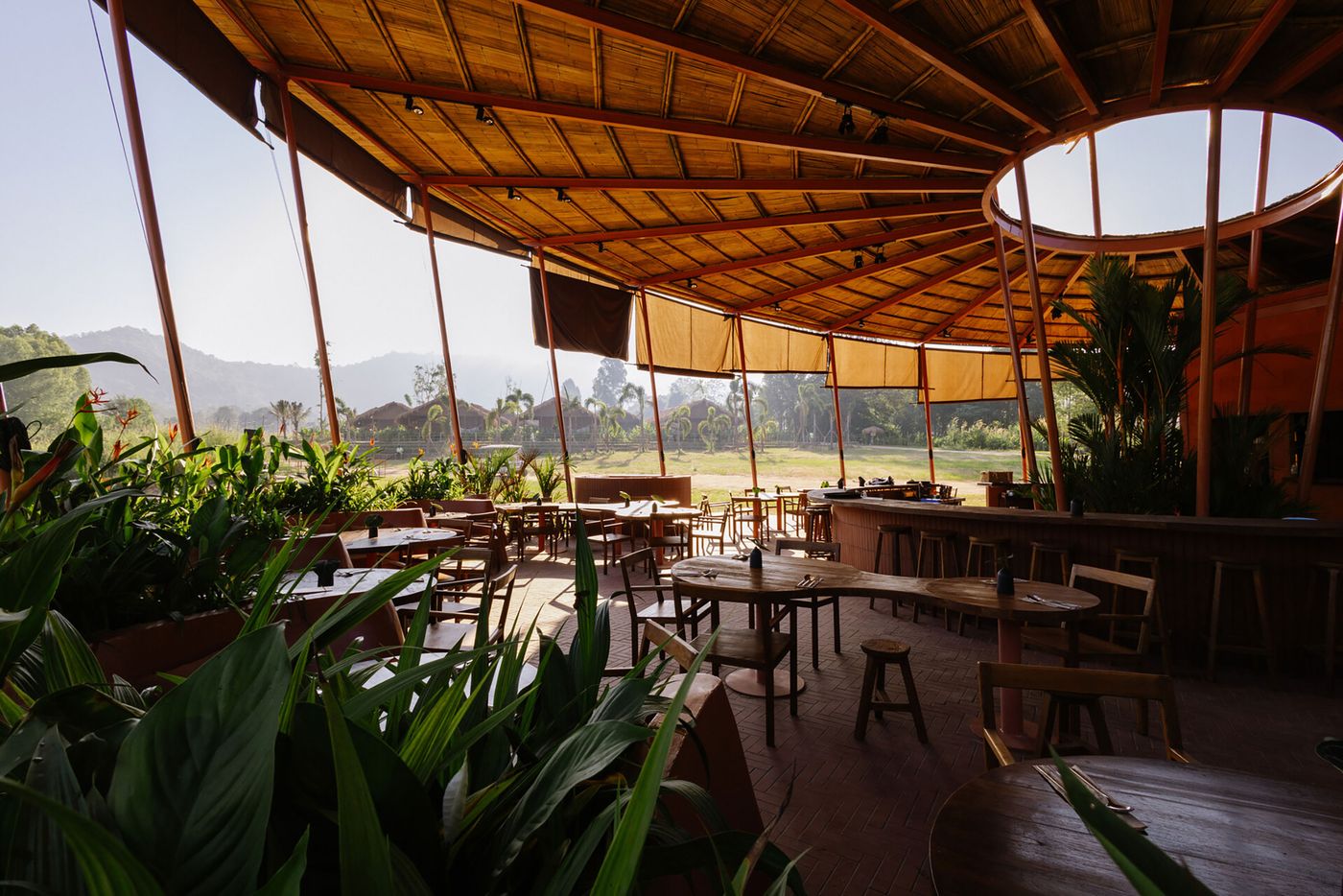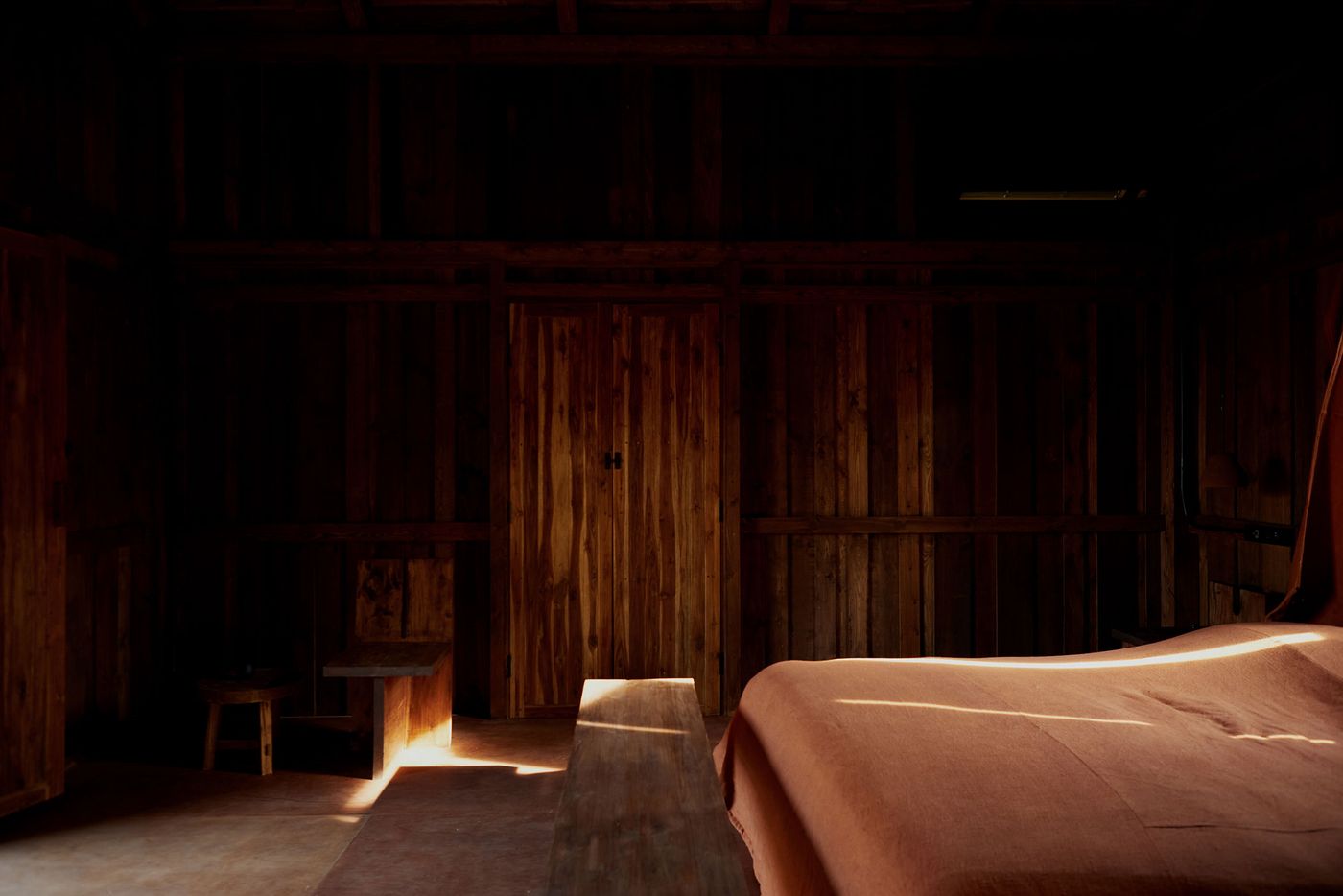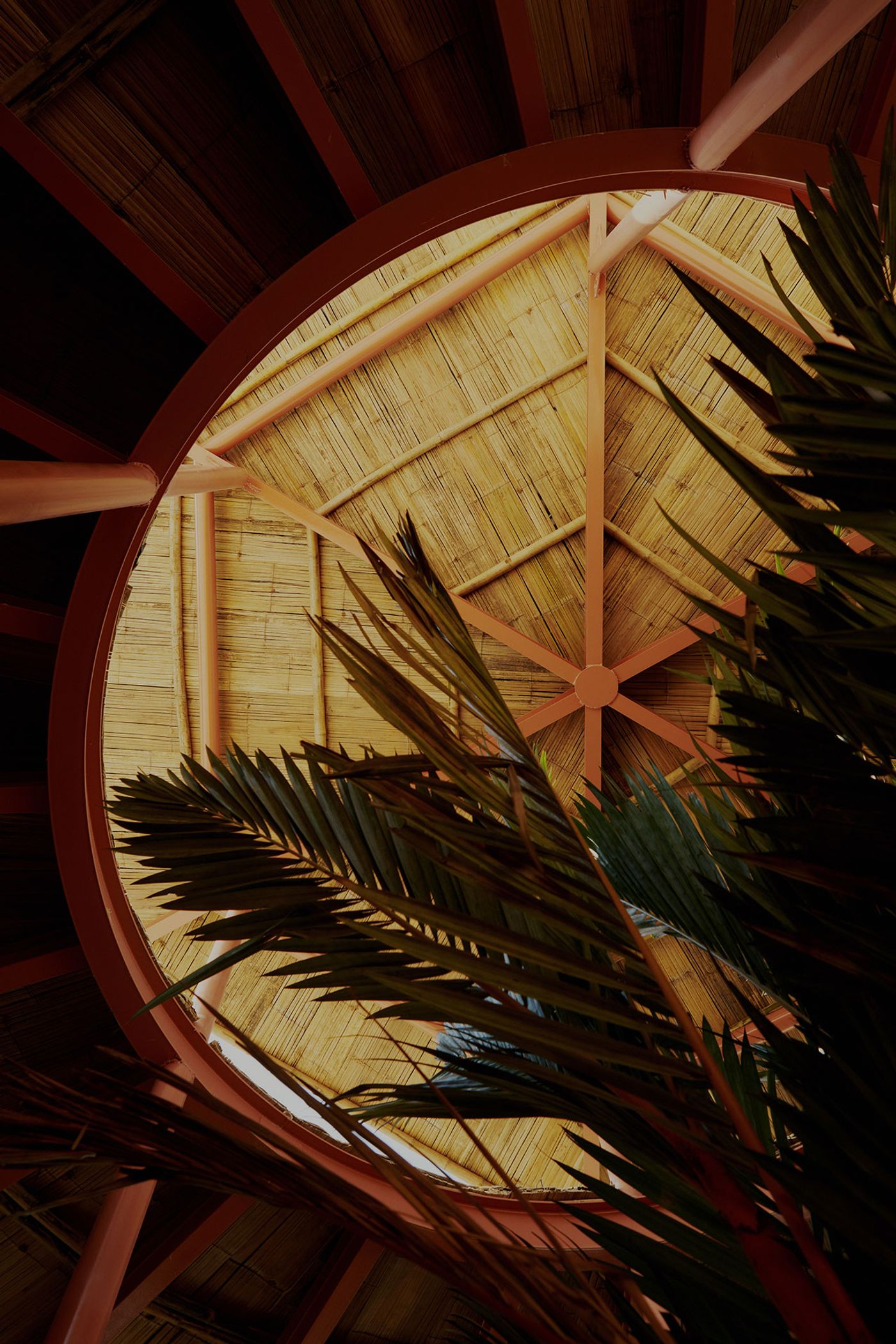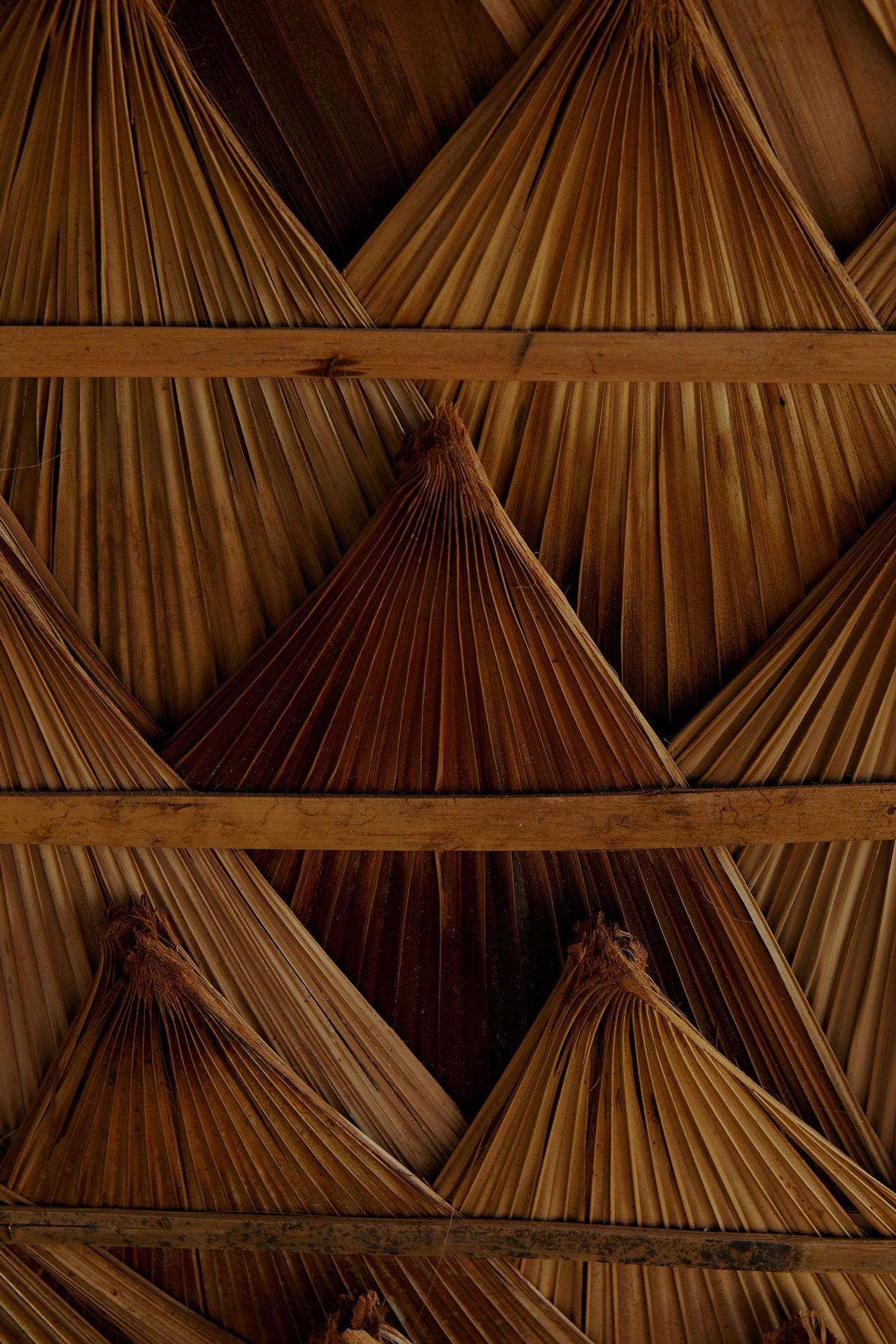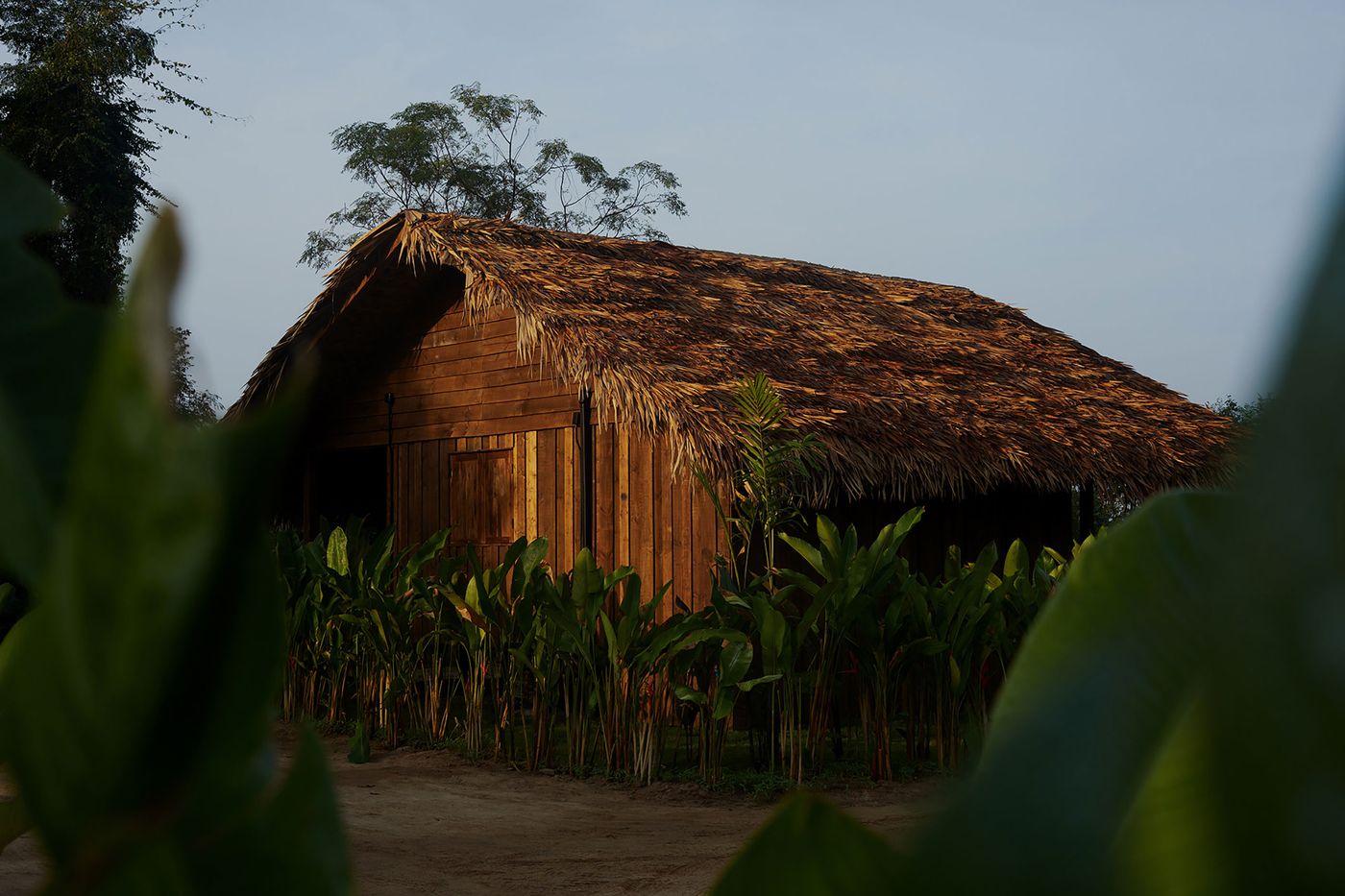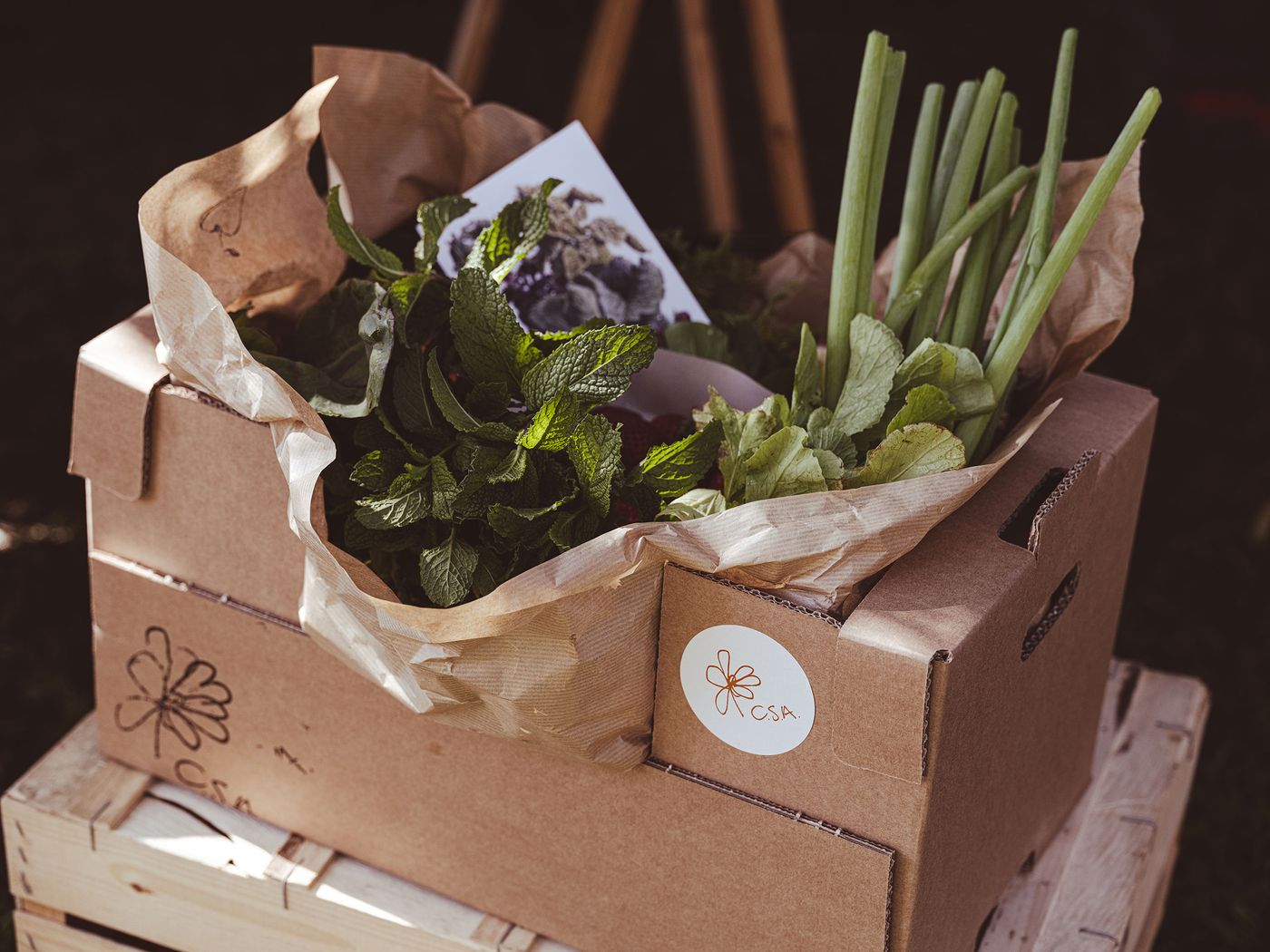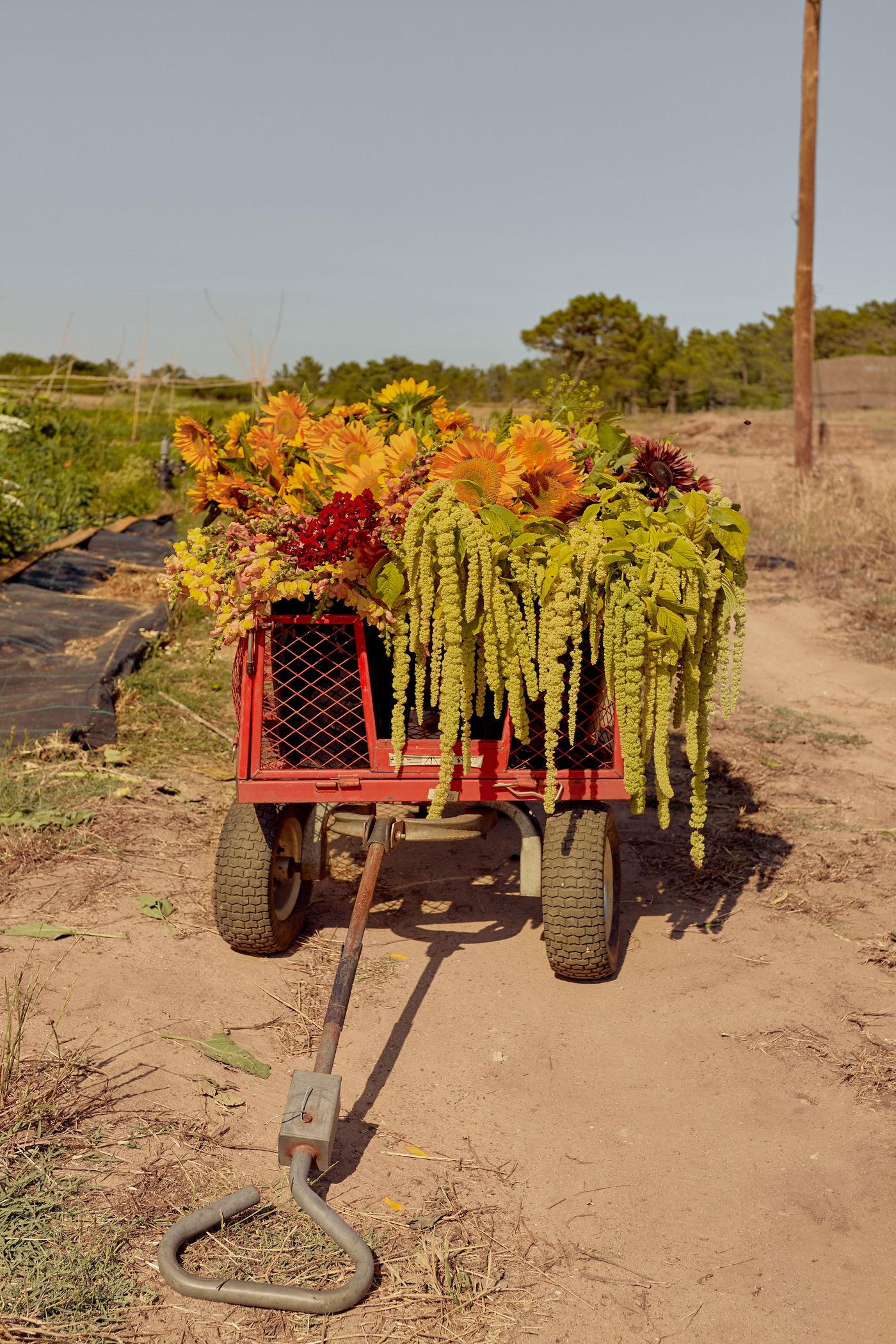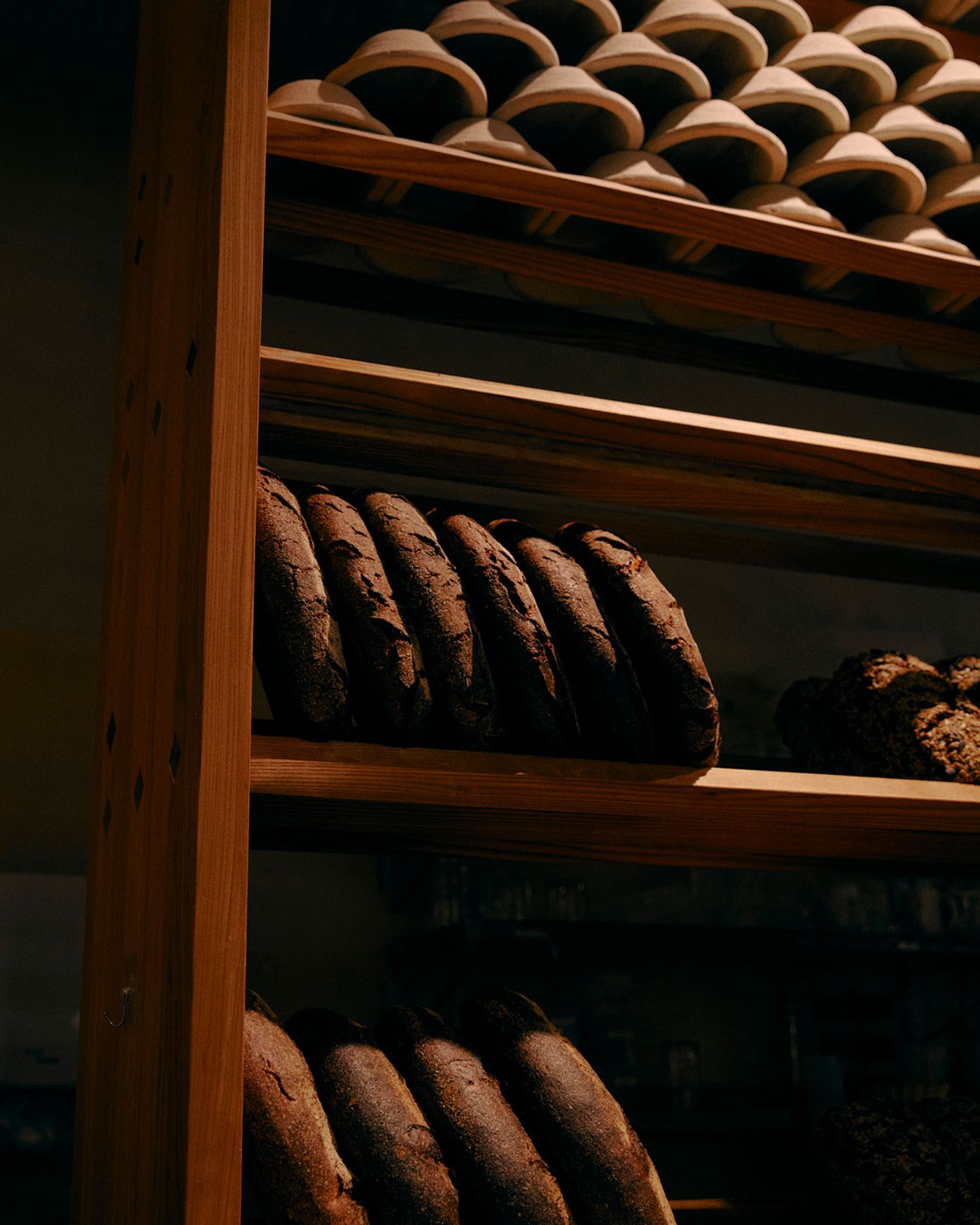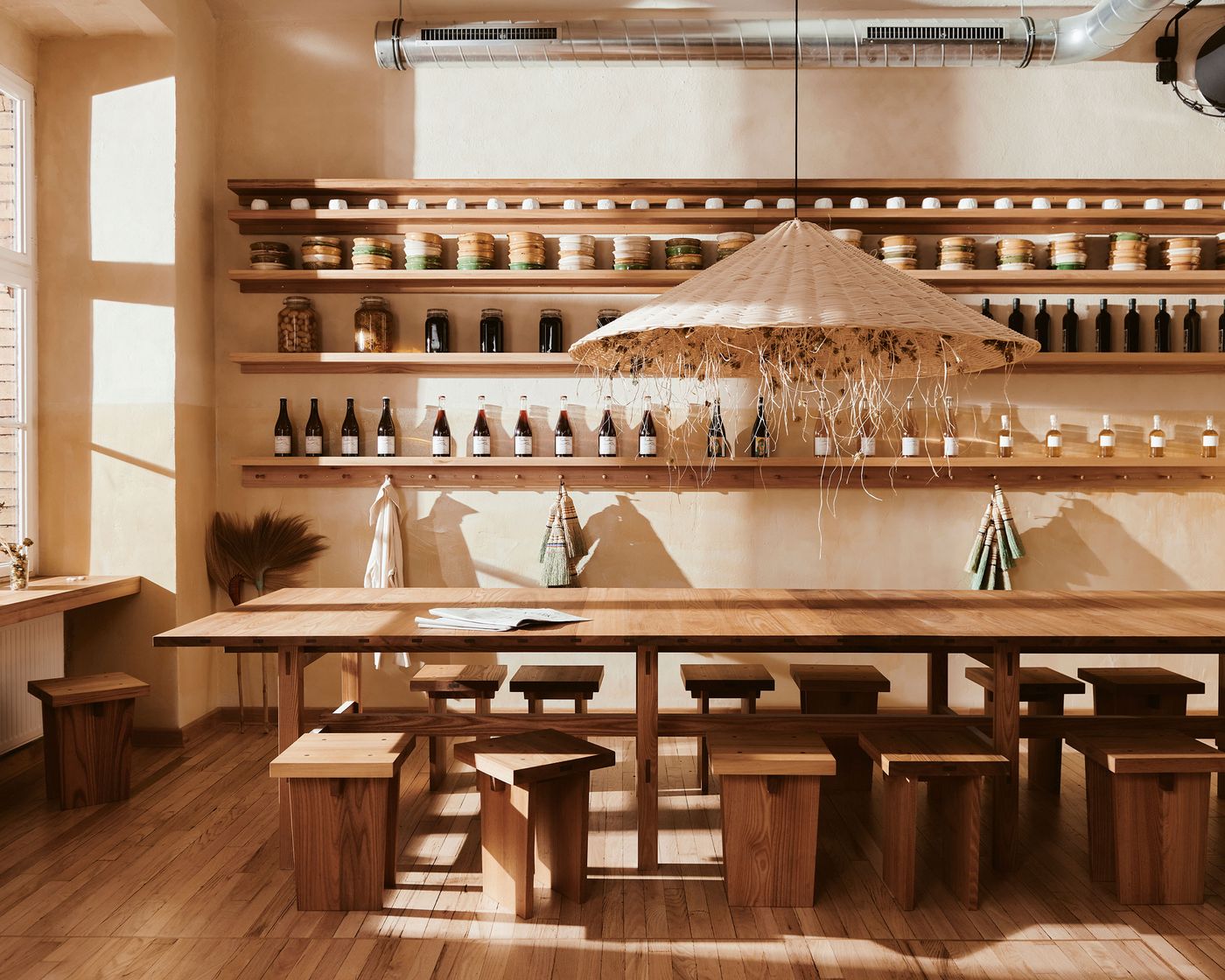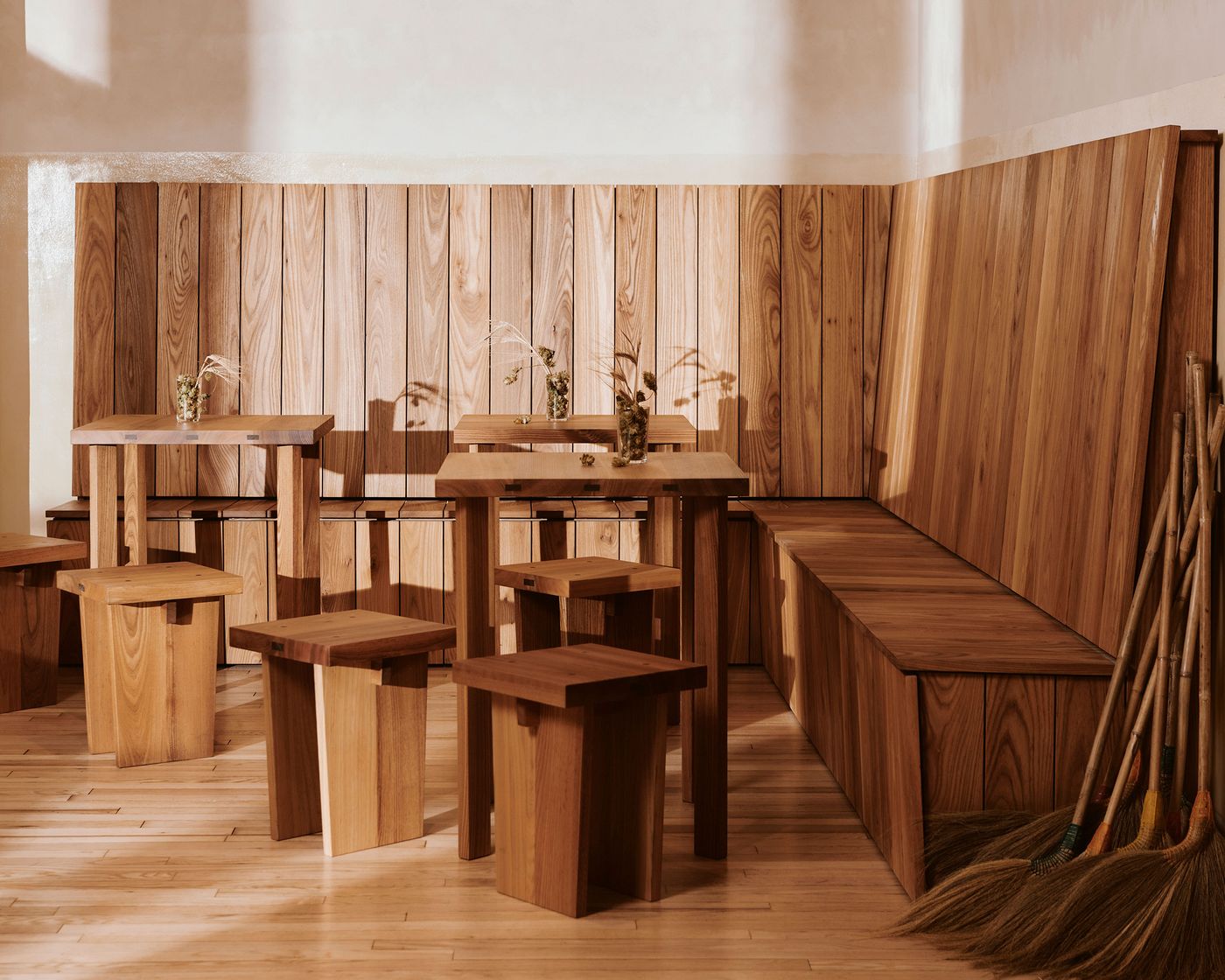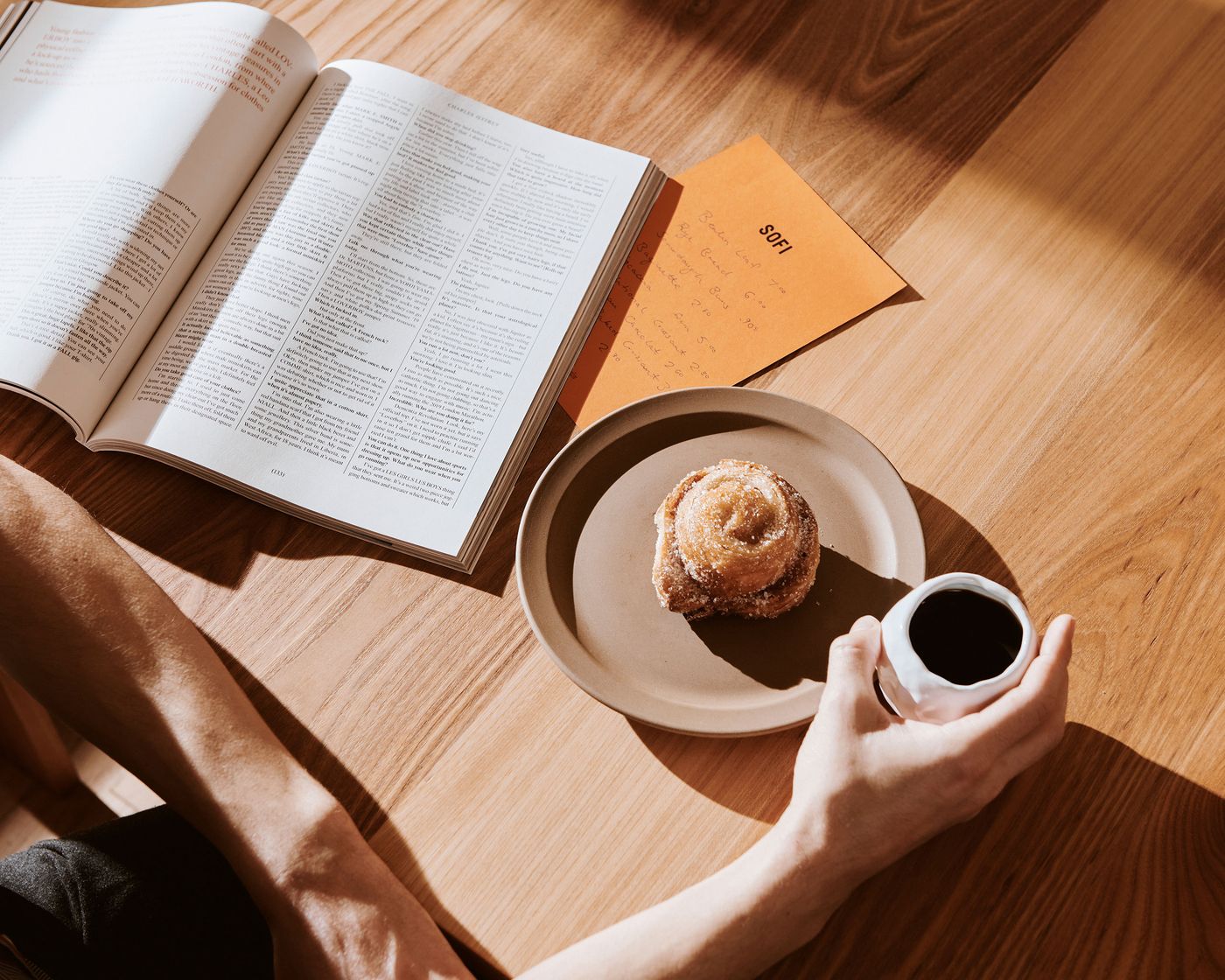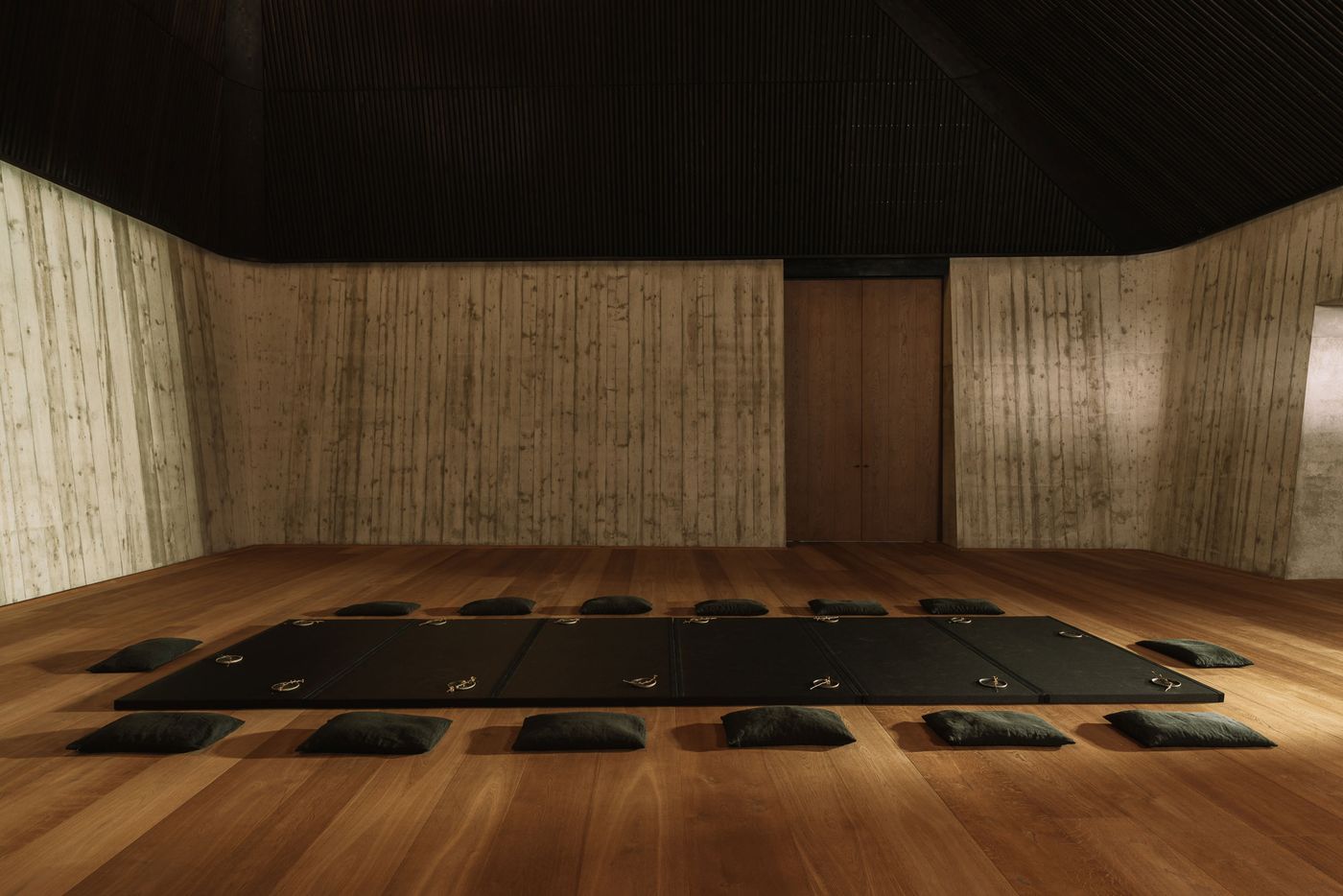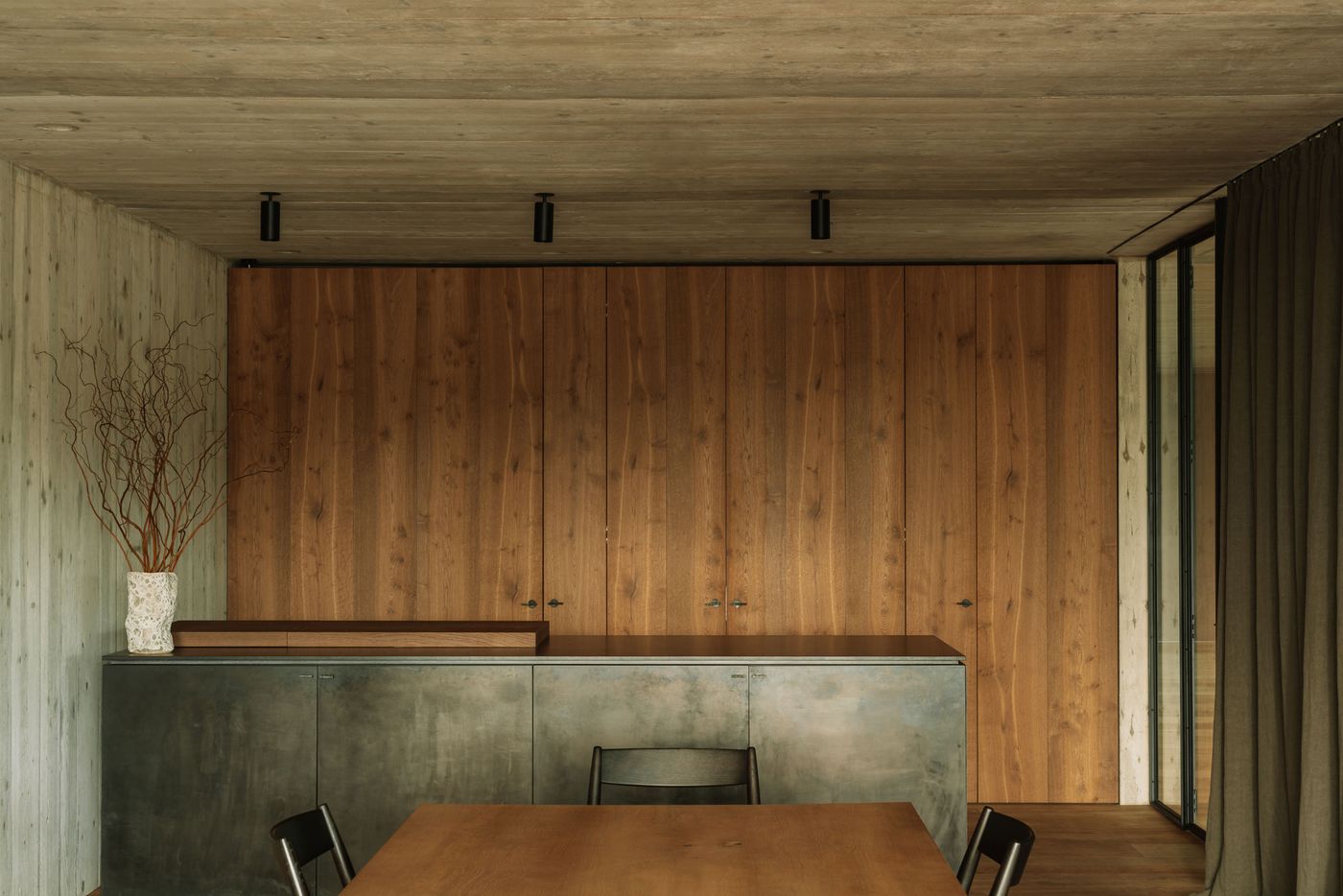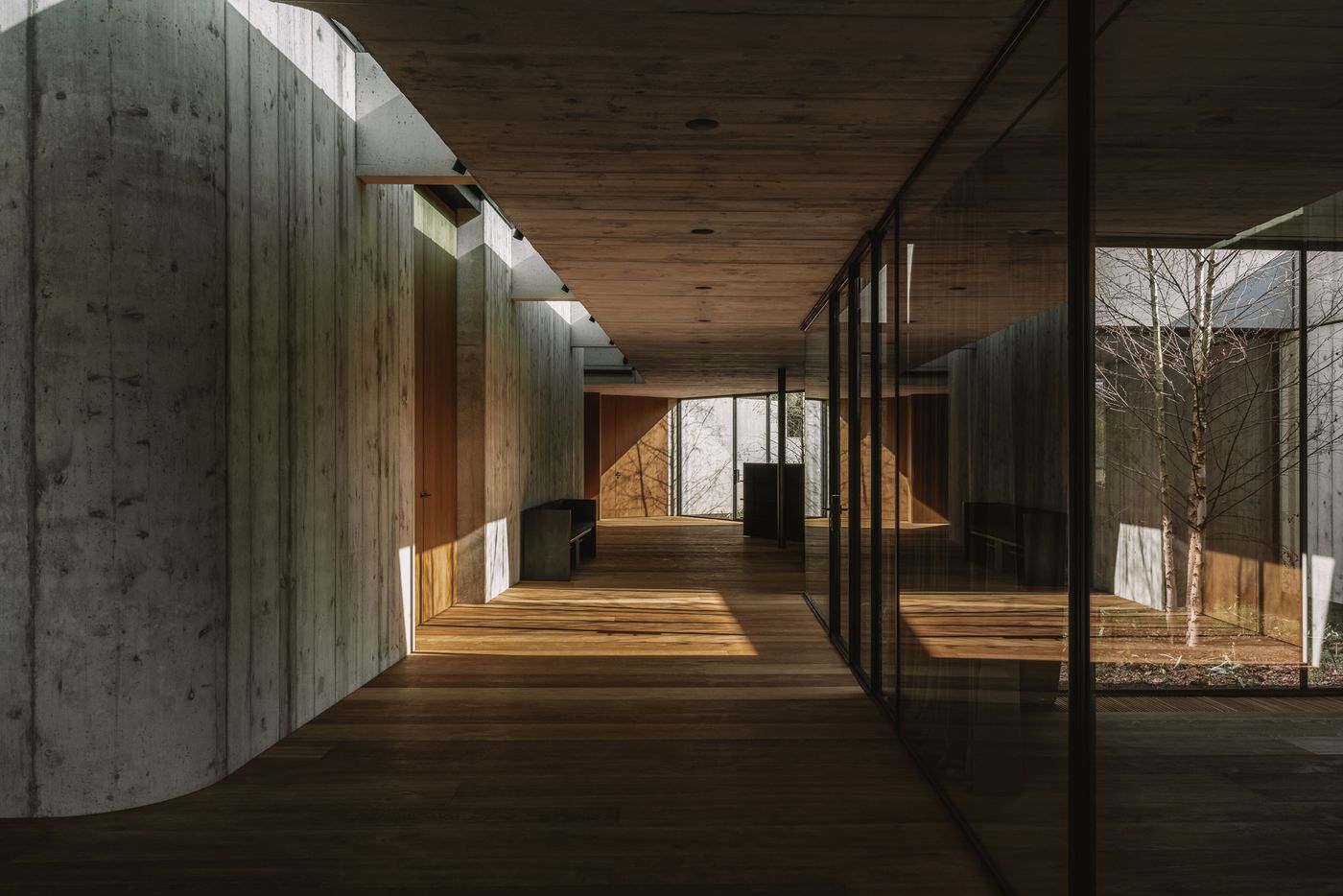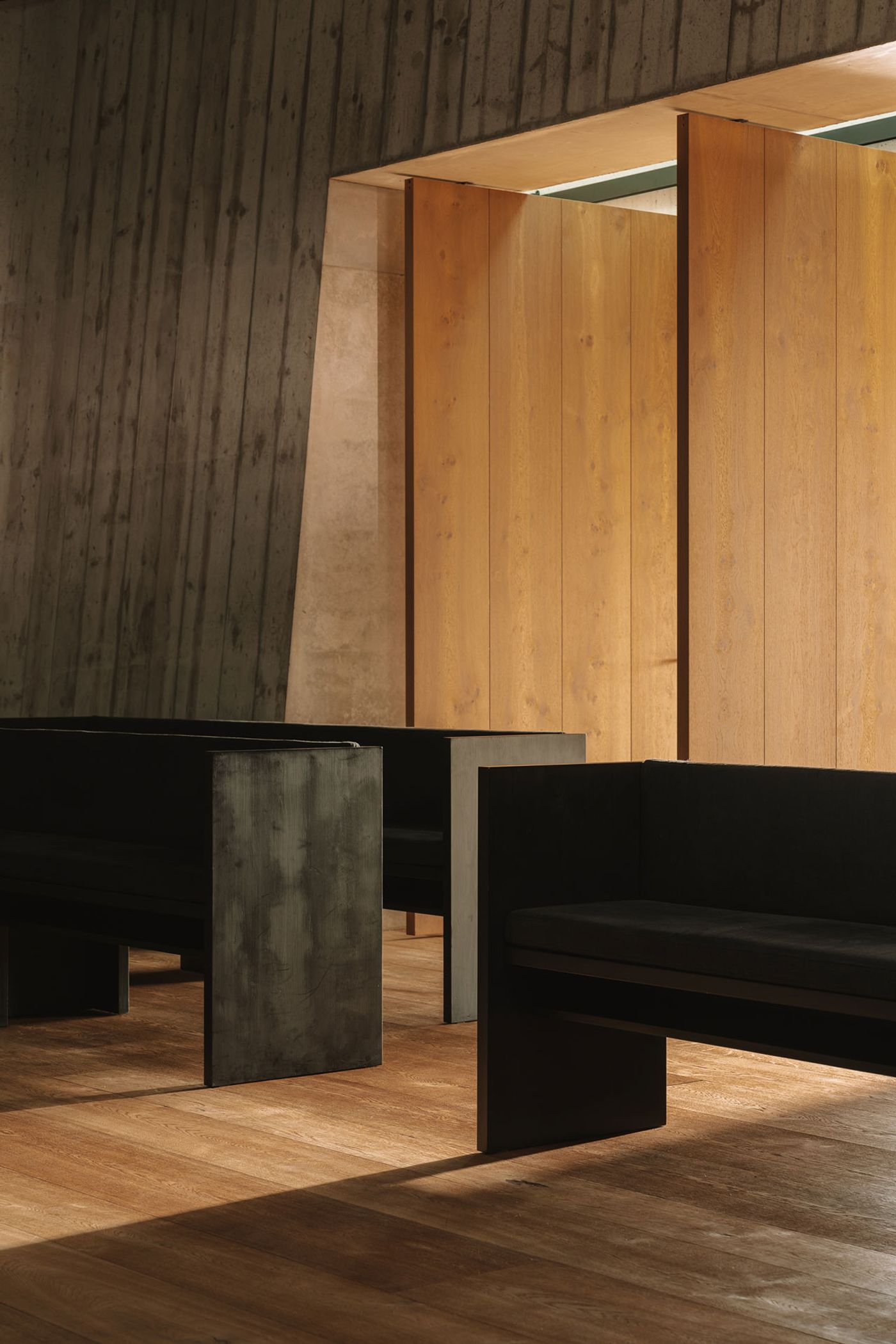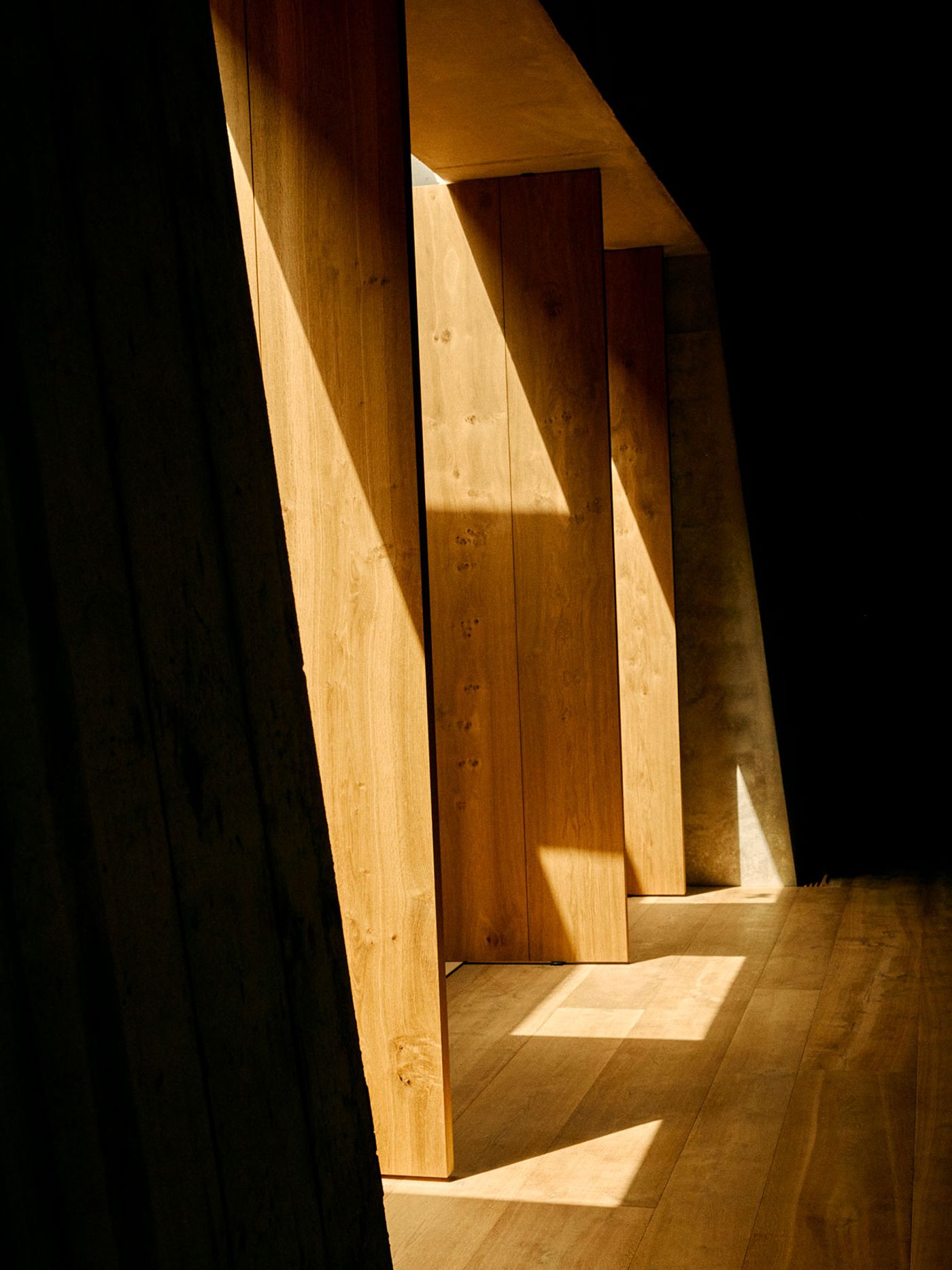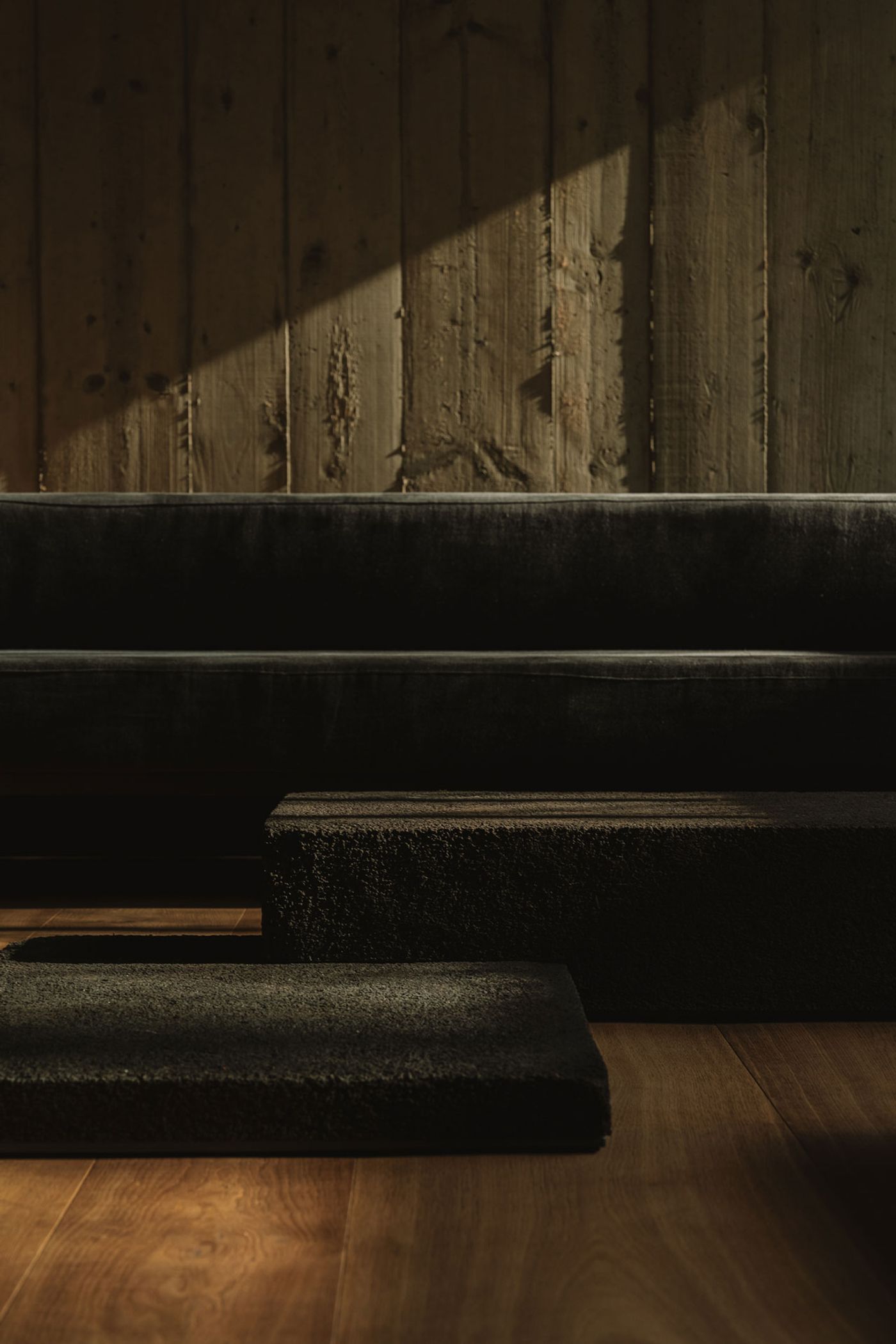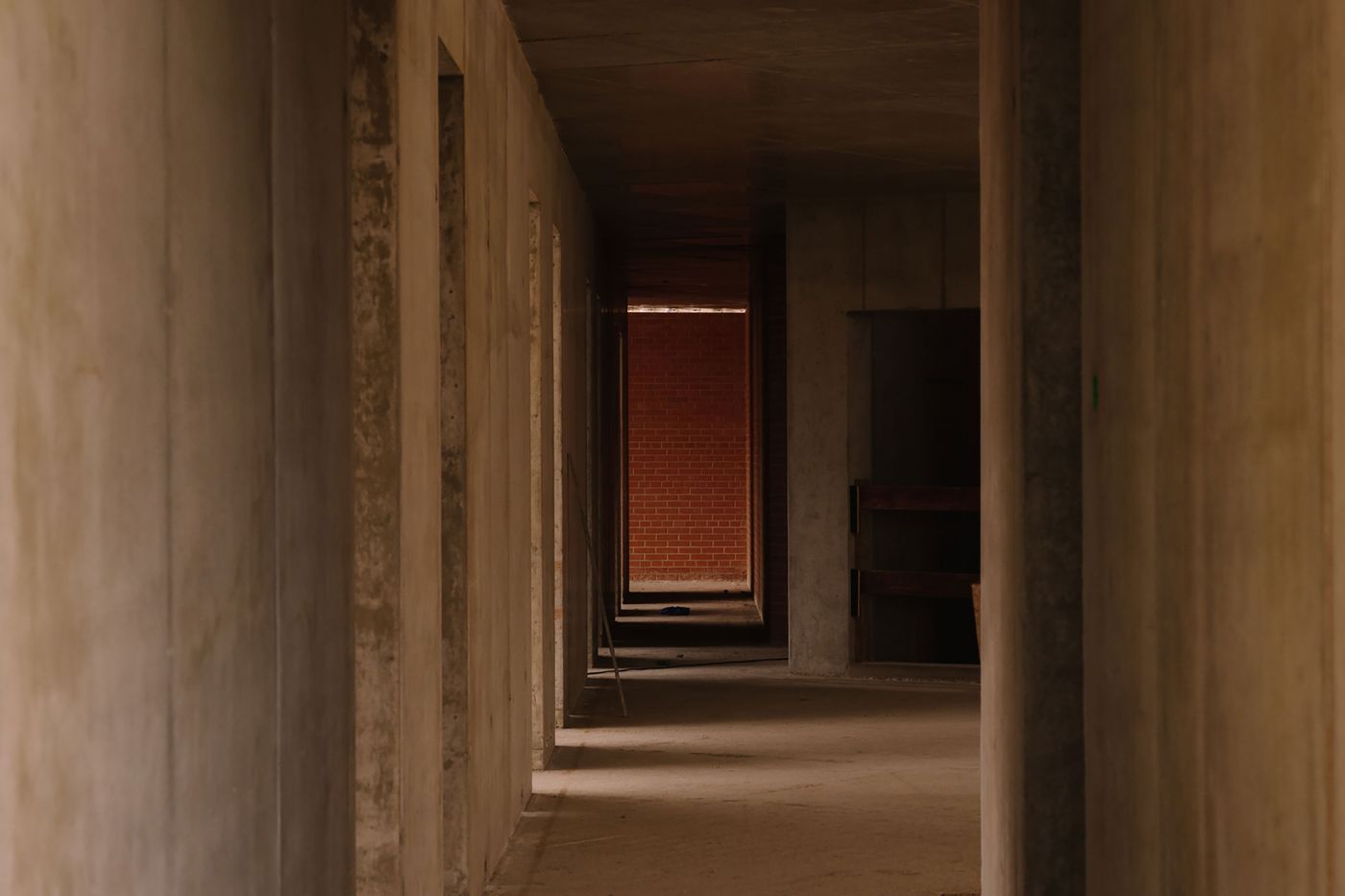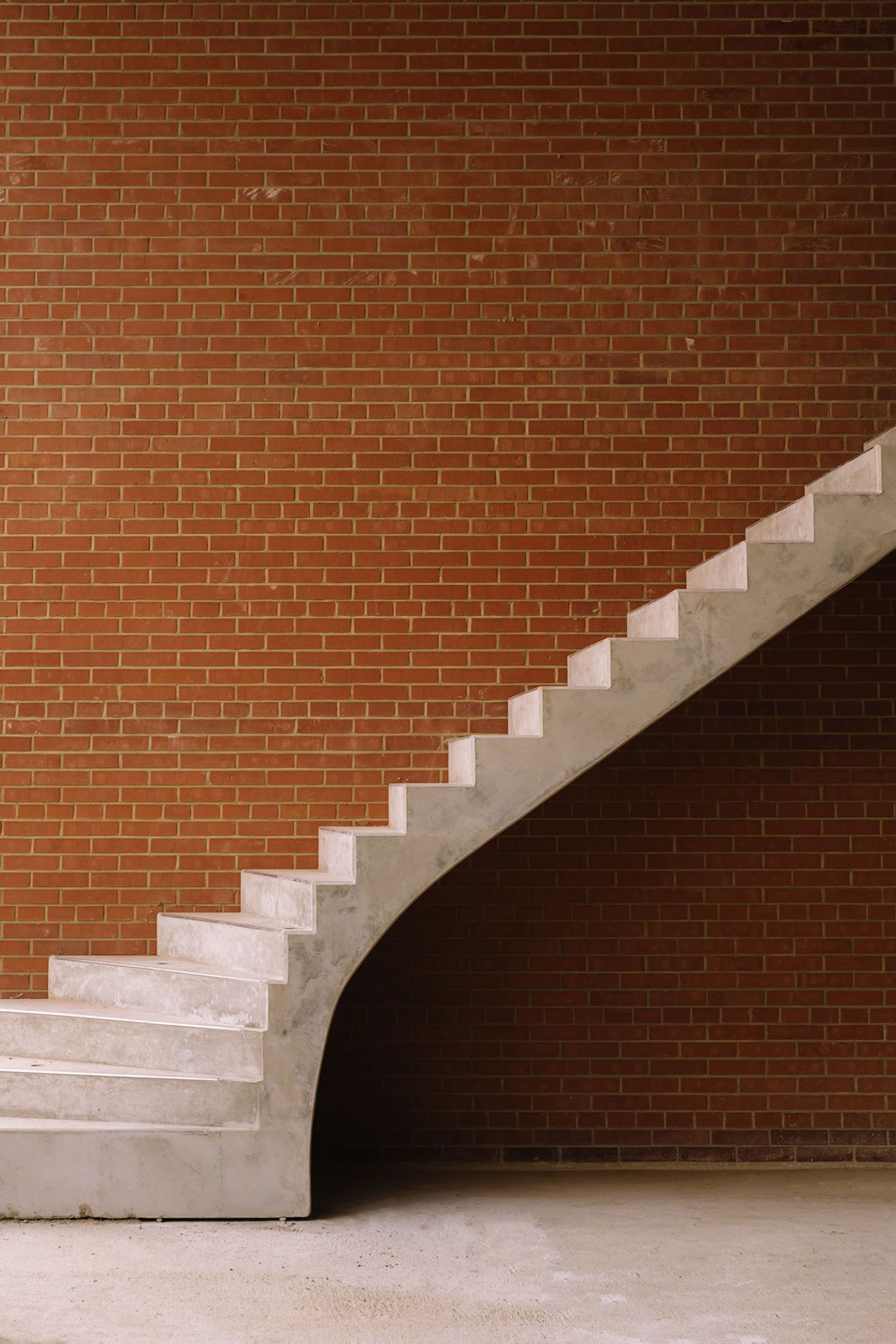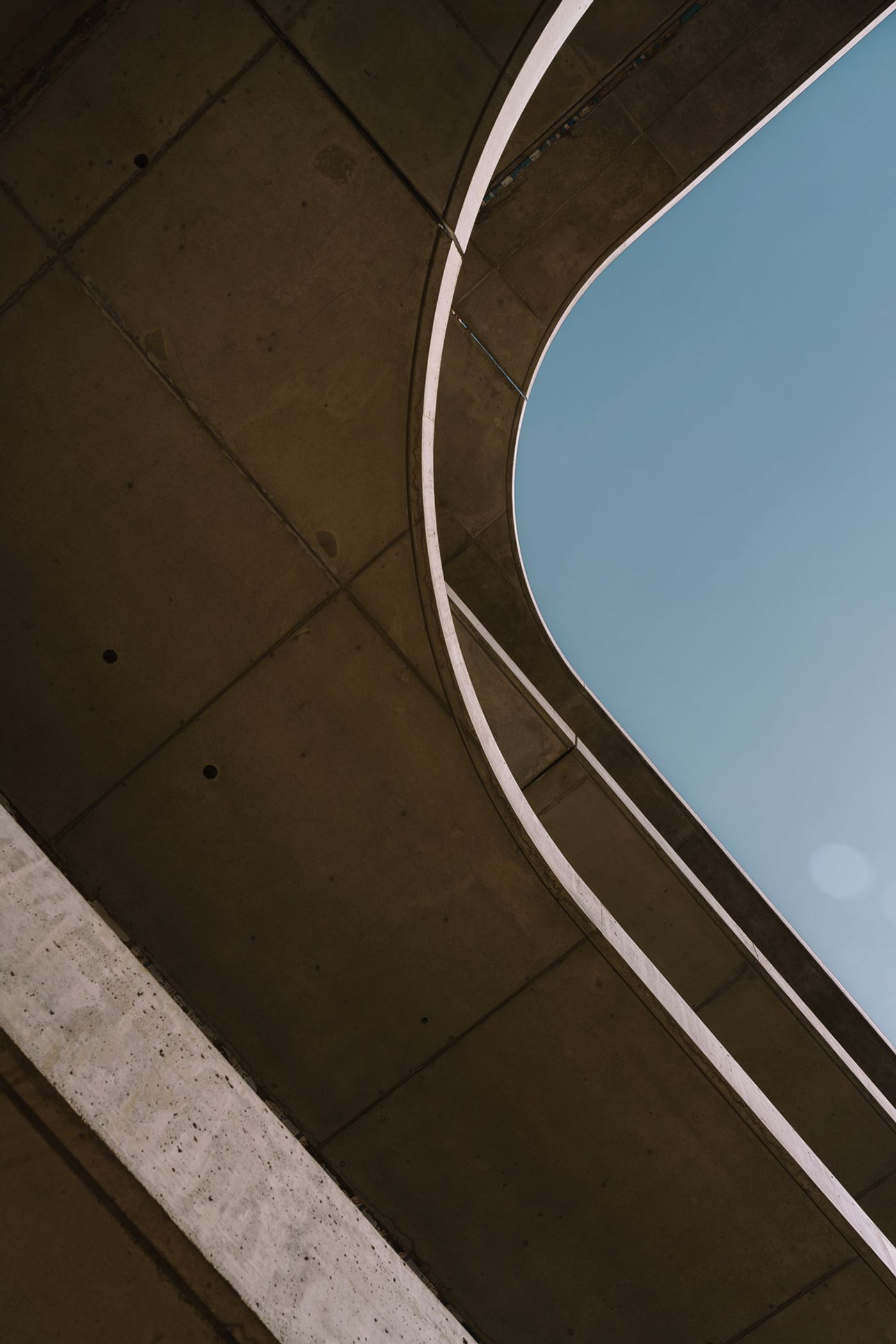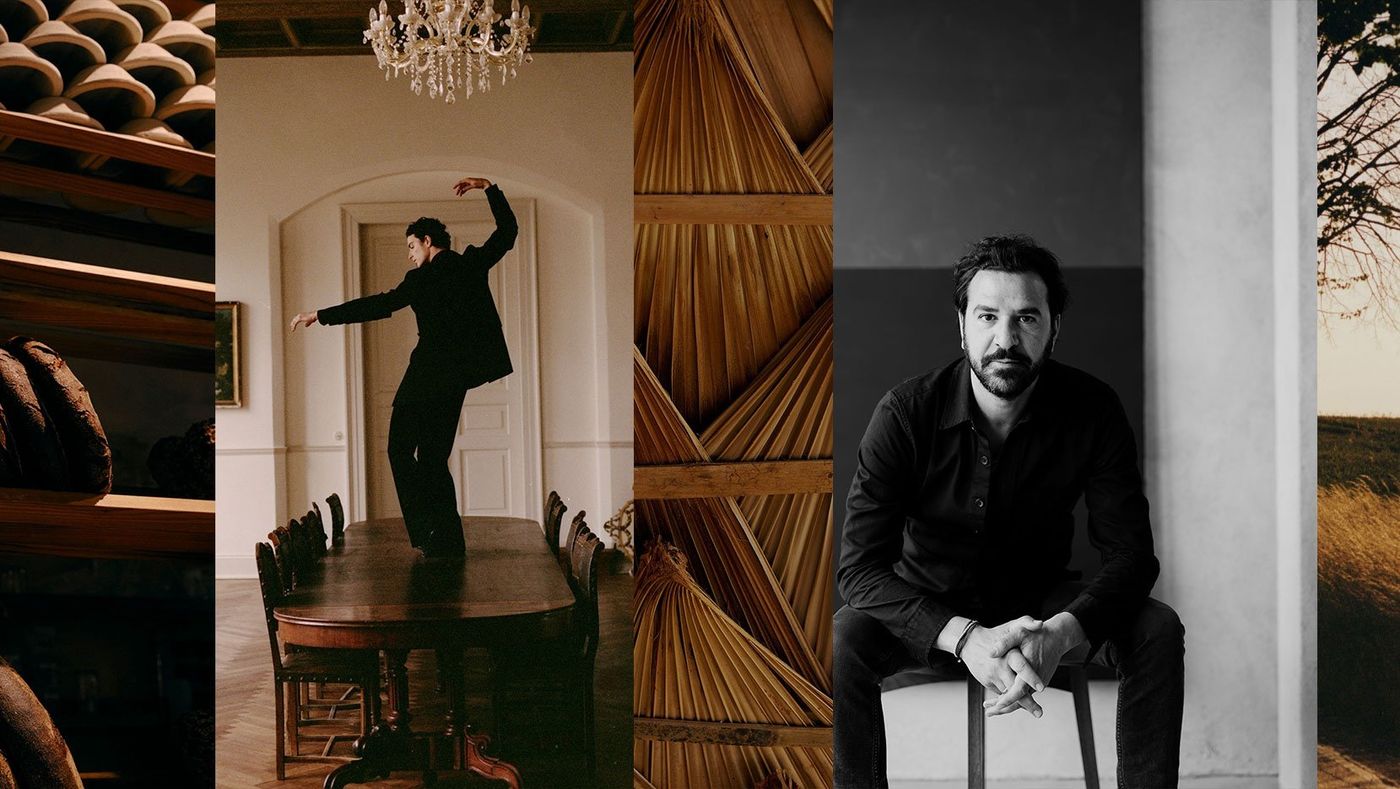
The Art of Slowing Down: Serdar Kutucu Discusses a Holistic Approach to Hospitality
Words by Eric David
Location
The Art of Slowing Down: Serdar Kutucu Discusses a Holistic Approach to Hospitality
Words by Eric David
Over the past 10 to 15 years, the slow movement has shifted the travel and hospitality industry's focus from mere accommodation to offering a holistic journey of personal growth and reconnection. With its emphasis on mindfulness, sustainability, and a deeper connection to our surroundings, the movement has sparked a growing demand for more mindful, meaningful travel experiences, especially in response to the COVID-19 pandemic. Positioned as an experimental hospitality collective of people, places, and projects, Slowness was conceived both to cater to this demand and to amplify it.
Slowness creates and manages locally rooted places that nurture well-being, encourage lifelong learning, and promote sustainable practices, boasting a diverse array of properties and projects across multiple countries and concepts. These include a creative campus in Berlin, a historic manor house in Germany, an eco-retreat in Thailand, and various locations and initiatives in Portugal, including a community-supported agriculture program.
As Serdar Kutucu, CEO of Slow Capital—the independent holding company behind Slowness—explains, Slowness designs environments that not only offer an escape from our fast-paced world but also serve as platforms for new ways of living. With 12 years of experience as the Chief Operating Officer at Design Hotels, Kutucu brings a wealth of knowledge that guides the collective’s innovative approach to hospitality. Yatzer recently caught up with Kutucu to discuss Slowness, the company’s vision, upcoming projects, and its focus on programming.
Answers have been condensed and edited for clarity.

Serdar Kutucu – Chief Executive Officer, Slowness.
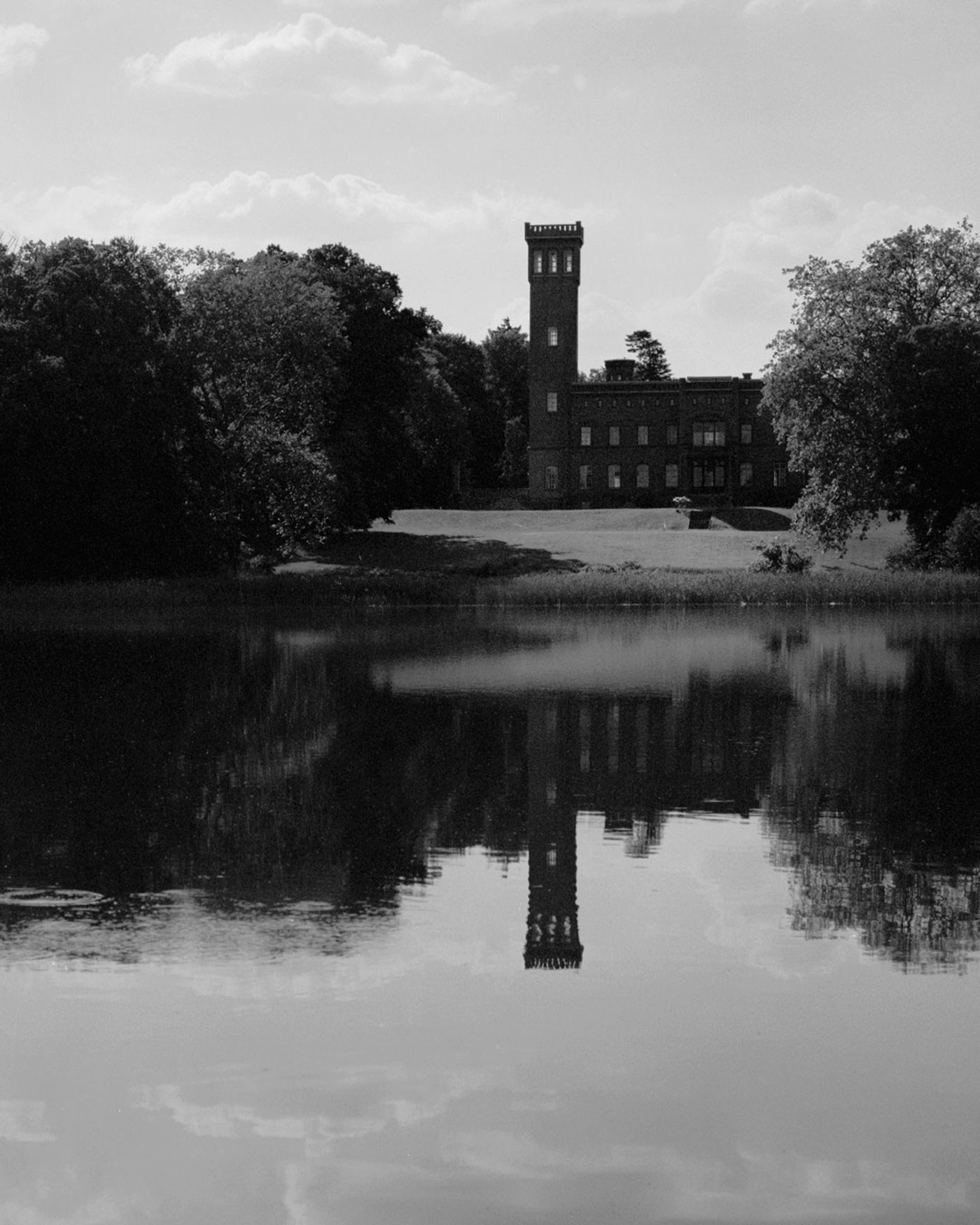
Arnesse. Uckermark, Germany. Photography by José Cuevas. © Slowness.
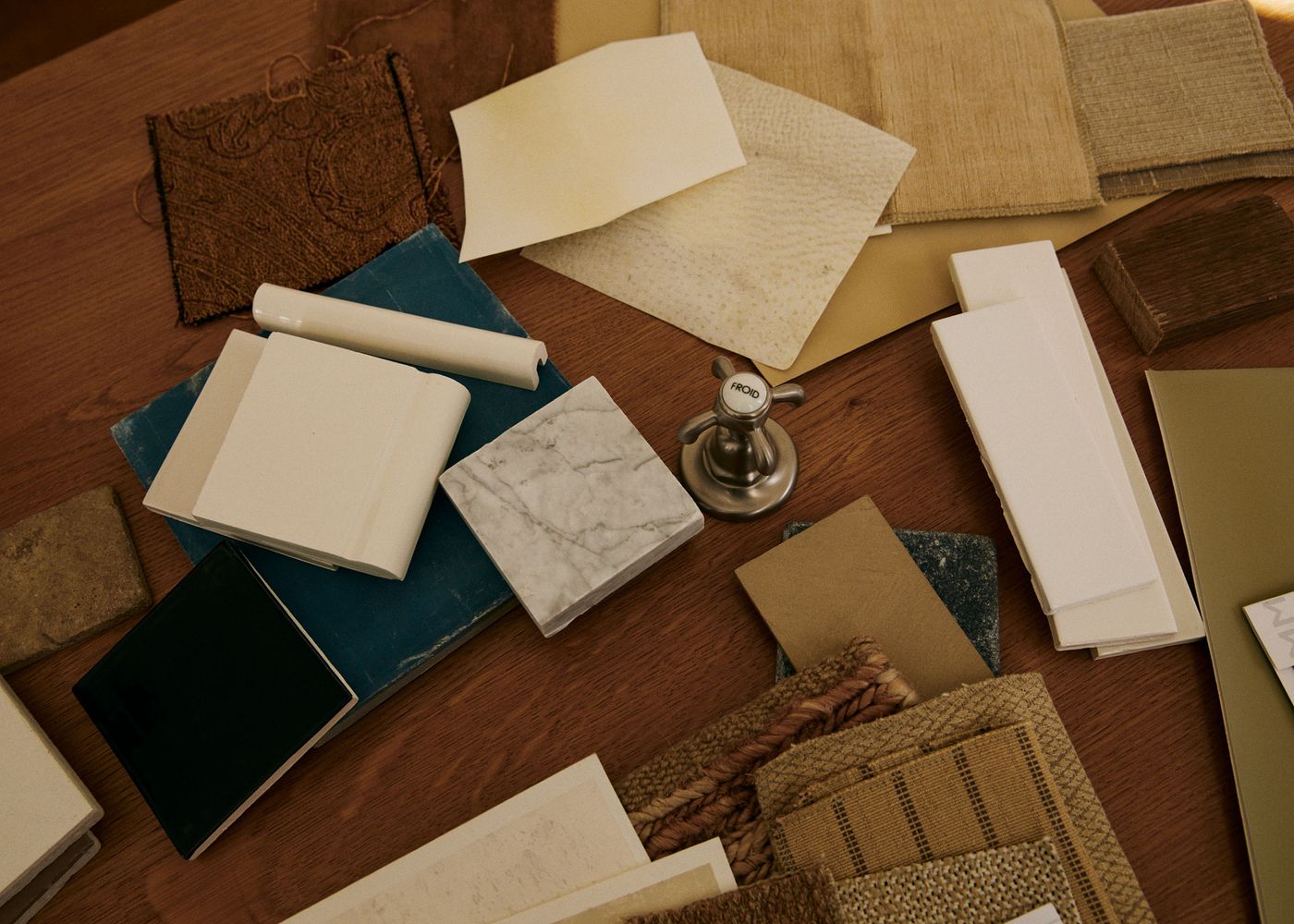
Arnesse. Uckermark, Germany. © Slowness.
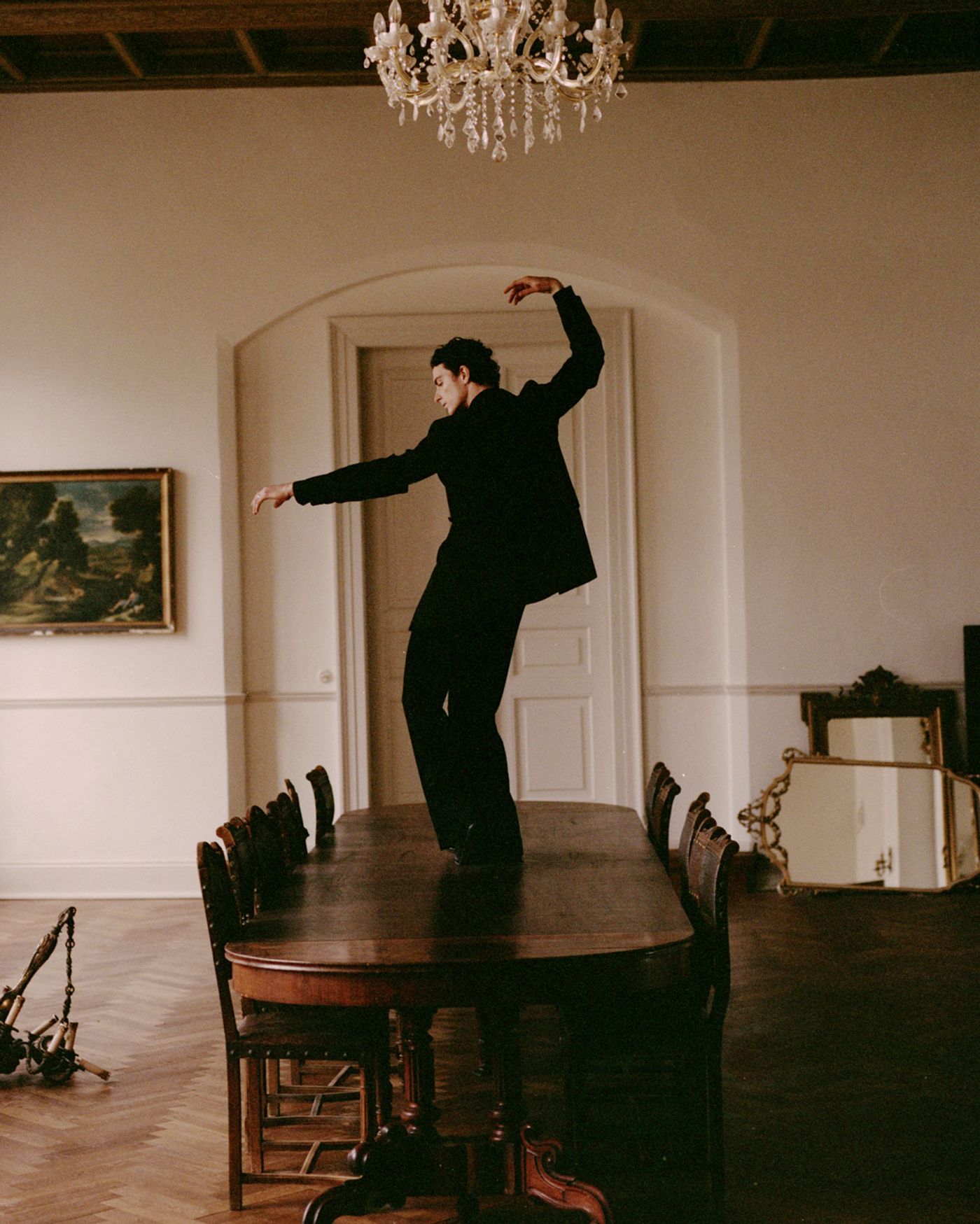
Arnesse. Uckermark, Germany. Photography by José Cuevas. © Slowness.
How did the idea for Slowness come about? Is it a reaction to the hectic pace and bombastic hype of the hospitality industry or more of a reset in search of a new way of living?
I think it’s both of those things. I would say the idea dates back to the Design Hotels days, when we started experimenting with temporal hospitality, especially with the creation in 2016 of La Granja Ibiza. Transforming this abandoned farm into a working zero-waste farmstead hotel that also functioned as a platform for discourse around food, health, and culture helped us to understand the vast potential for hospitality concepts that offer an alternative to the hectic urban pace but also present models for new ways of living.
Undoubtedly, the tenets of the slow movement have a great influence on Slowness’ conception and development. How do its key ideas influence your approach?
The slow movement has had a big influence on us, especially the slow food movement, which emphasizes organically grown regional produce and biodiversity, as well as slow living, which prioritizes structuring your life not around aimless consumption but meaning, fulfilment and well-being in the fullest sense of the word. To be slow is not merely to decrease the pace of life. It’s about taking the time to reconsider our actions and think more deeply and responsibly about how we live. It’s about enriching wellbeing and modeling a more sustainable future.
For us, this means taking a localized, conscientious approach to every element in the creation of integrated aesthetic environments designed to enrich wellbeing and model a more sustainable future. Under the motto Cultivating arts, crops and inner gardens, we build and nourish locally rooted places that offer a deeper, more conscious form of hospitality—not just a “pit stop” away from the hectic pace of daily life but a continuous journey of reconnection, of learning how to live in harmony with nature, our community and ourselves.
What are the hallmarks of a Slowness property?
We generally think not in terms of single properties but in terms of destinations. Rather than thinking of a site in isolation, we develop symbiotic constellations in the vicinity of city centres that support and are in dialogue with each other. There will always be a farm or rural retreat, something on the water, at least one arts space and an urban guesthouse—and across them all, platforms for art, ideas and education. In parallel to site development, we build a network of experts and creative contributors spanning architecture, artisanship, agriculture, gastronomy, the arts, education and beyond in order to build the site holistically and imbue it with culture and content.
Your eclectic portfolio includes properties in Germany, Portugal, and Mexico. Which place is your favourite and why? Where do you feel most at home?
This is so hard to answer, especially given that our properties are still under development. I’ve recently relocated from Berlin to Lisbon, so I’m increasingly at home in Portugal. An exciting project I feel very passionate about is Herdade do Meco, the regeneration of an abandoned farm on a 114-hectare oceanfront property one hour south of Lisbon. We are developing 29 private villas and hospitality with 48 keys around the farm, an art barn, a health center, a home for crafts and work studios, and a clubhouse—all with beautiful sea and sunset views. It’s a place of peace and good energy.
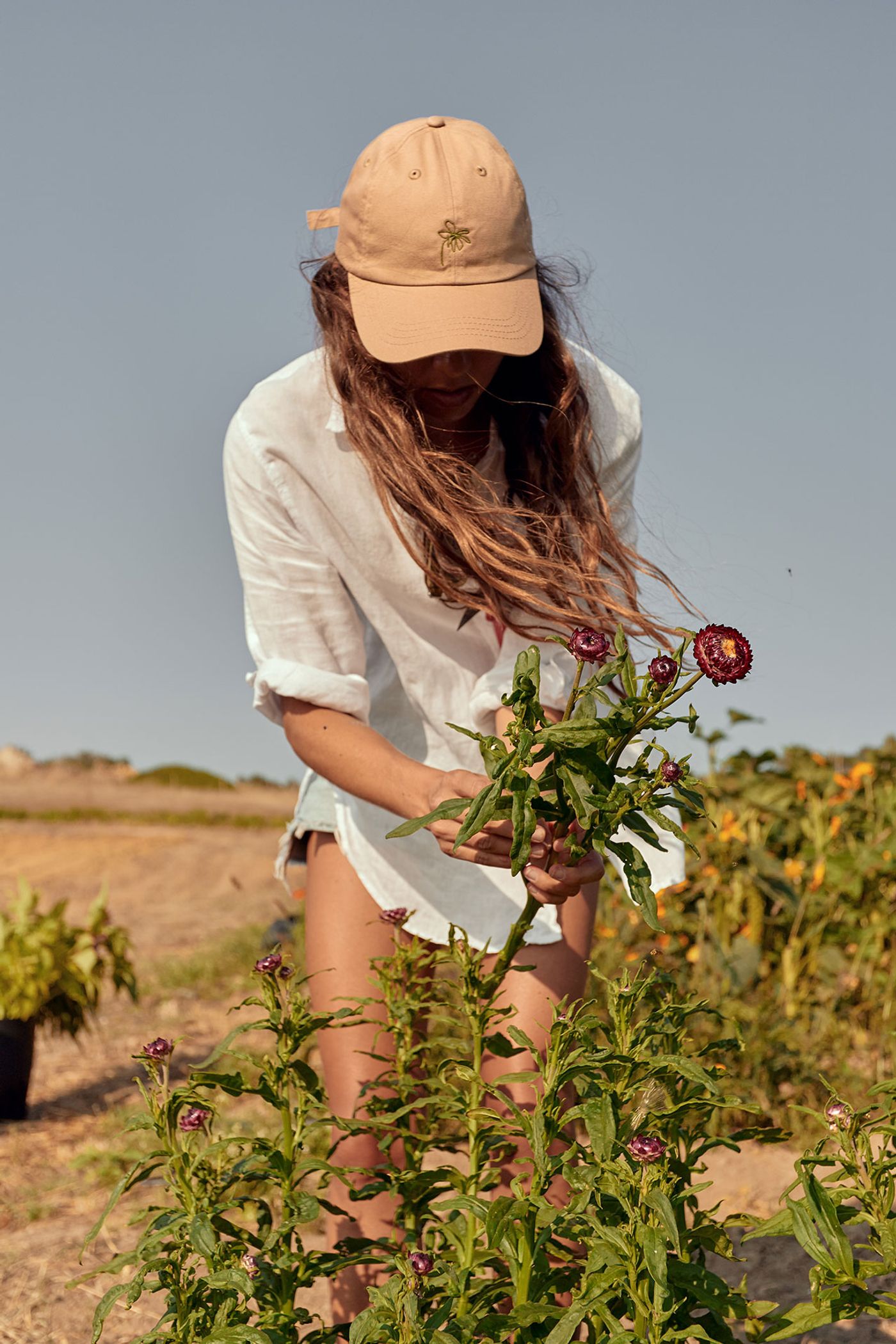
Friends of a Farmer, Herdade do Meco, Portugal. © Slowness.
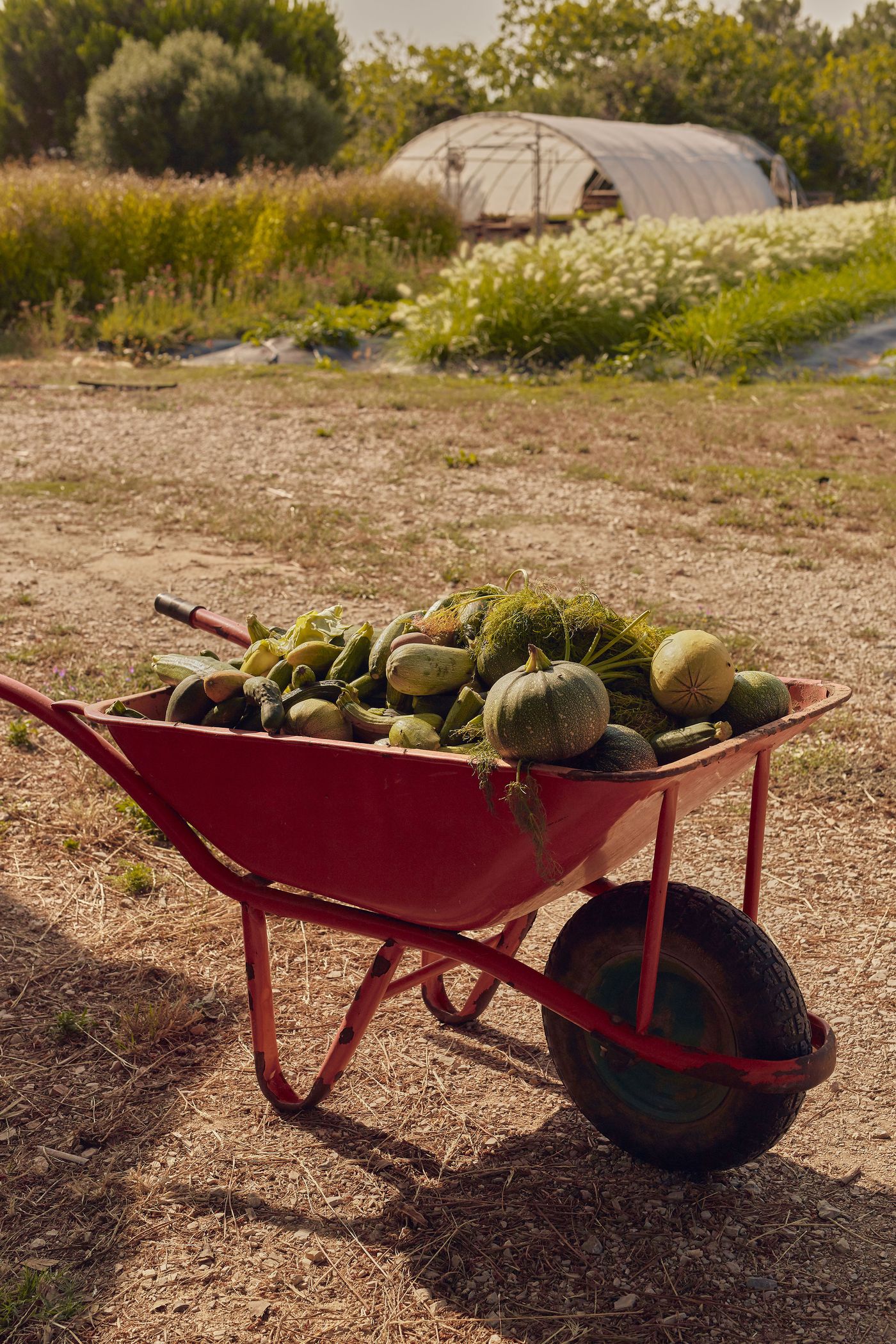
Friends of a Farmer, Herdade do Meco, Portugal. © Slowness.
How did your tenure as COO of Design Hotels inform your approach to hospitality? What are the key takeaways you took with you in your new venture?
There really are too many to name! We learned so much about community-building, which is a lot of what we focused on at Design Hotels, especially through the annual Arena conference and Further, a traveling laboratory for experiential hospitality that we launched in 2017. We also learned a great deal about loyalty programs after Starwood Hotels & Resorts acquired a majority share of the company and we launched integrated access in 2016 to SPG, which continues today with Bonvoy, Marriott International’s loyalty program. But I think what Slowness has also offered us a chance to step away from the corporate hospitality world and work on the projects that we truly believe in, boundary-breaking concepts that challenge the status quo.
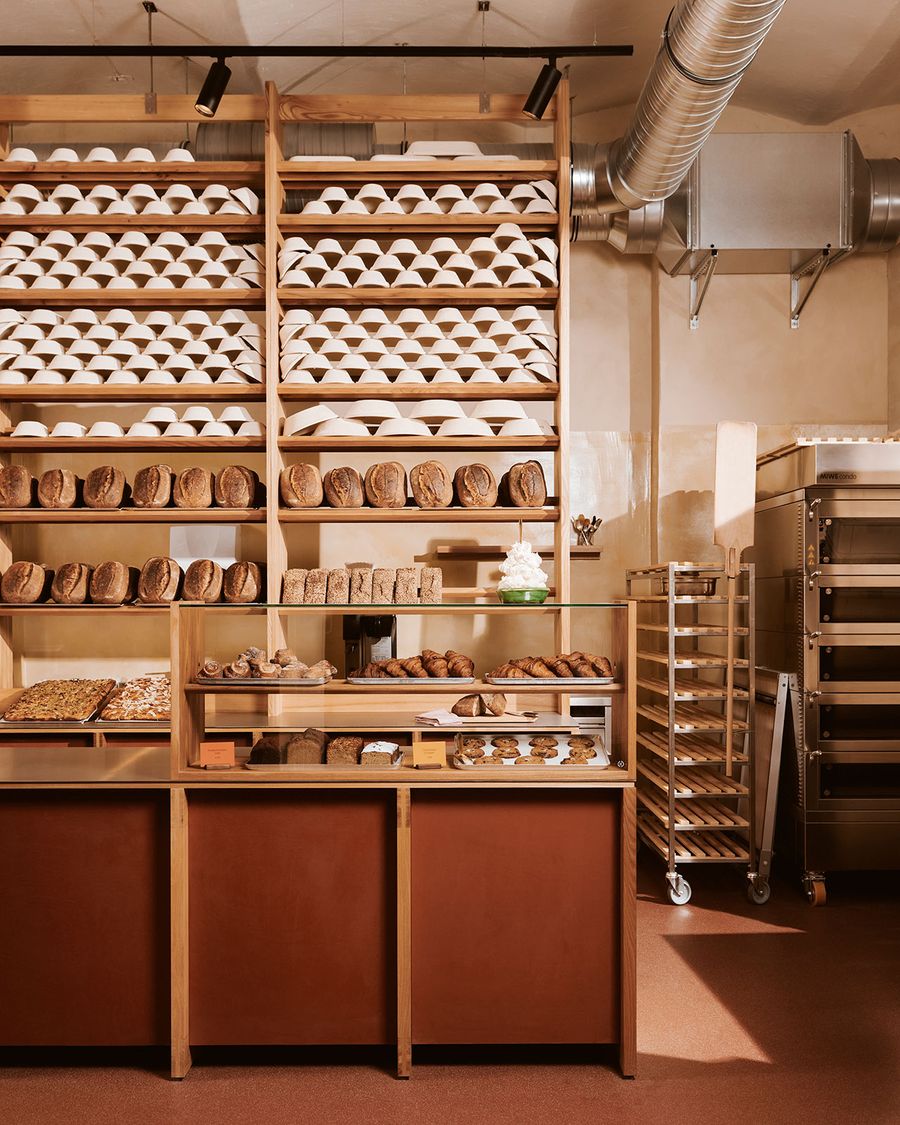
Sofi. Berlin, Germany. © Slowness.
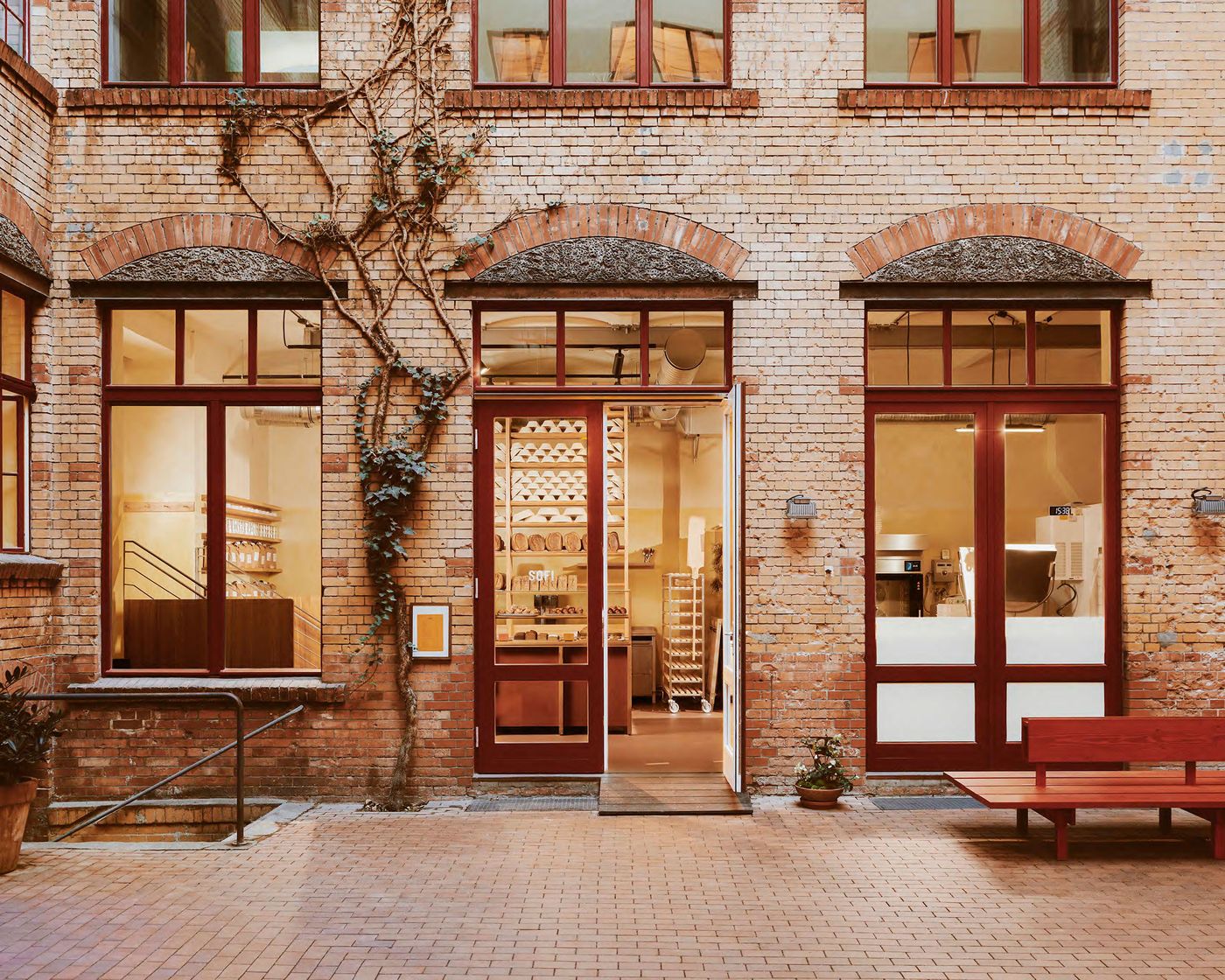
Sofi. Berlin, Germany. © Slowness.
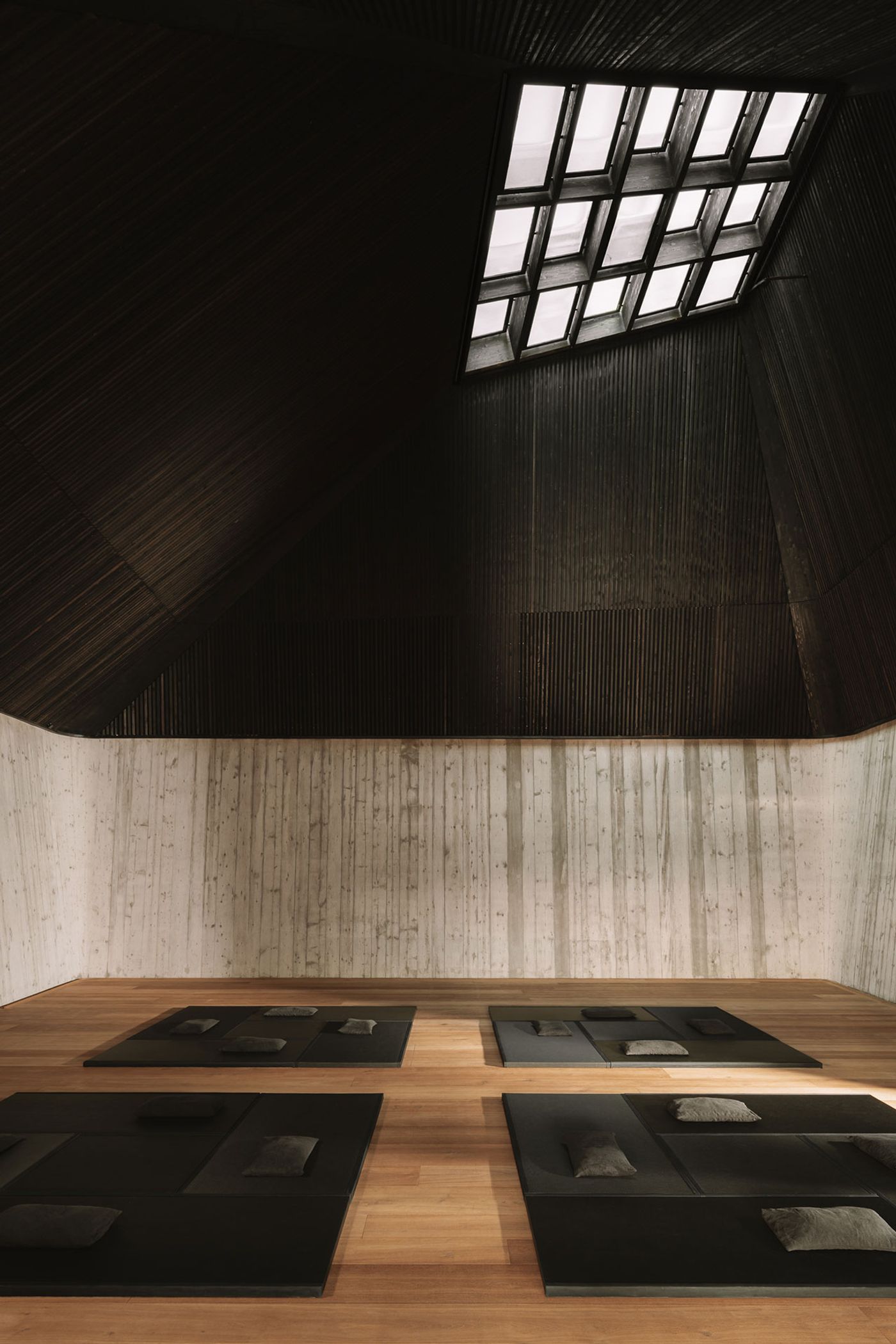
Flussbad. Berlin, Germany. © Slowness.
An integral part of Slowness’s approach to hospitality is its forward-looking embrace of cultural heritage. How do you go about striking a balance between such antithetical goals like celebrating local traditions and fostering innovation?
We don’t think of innovation and tradition as being necessarily antithetical. You can look, for instance, at one of our partners in Portugal, Passa ao Futuro, which is a research-based nonprofit that “cultivates an interface for the development of ideas, techniques and skills between the historical past and the sustainable future.“ In other words, they link traditional artisanal skills from various regions in Portugal with new design methods in a way that actually innovates the industry.
Adaptive reuse is a central tenet of Slowness’ philosophy. How does it connect with your drive for sustainability, cultural preservation and connection to local communities?
Often, it’s very simple: why tear it down and build anew when you can use what’s already there? In Berlin, we are currently transforming the former Lichtenberg Municipal River Baths, a Weimar-era public bathing facility that once welcomed up to 10,000 visitors per day, into a cultural campus encompassing exhibition spaces, gastronomy, creative studios and workspaces—all integrated into the wild riverfront environment. Flussbad, as the project is called, nods to the site’s unique history through its sustainable redevelopment of ex-industrial eastern Berlin for the purpose of leisure and hospitality.
Sounds very intriguing! Tell us a bit more about this project. Is it open to the public?
We began our phased opening in September with the Reethaus, a subterranean performance space designed by Austrian architect Monika Gogl as a homage to ancient temples, caves and other natural voids. With its monastic cement interiors and 360-degree in-built spatial sound system, the Reethaus offers ideal conditions for experiential installations, mind-body practices, holistic learning and artistic performance drawn from Berlin’s rich cultural scene.
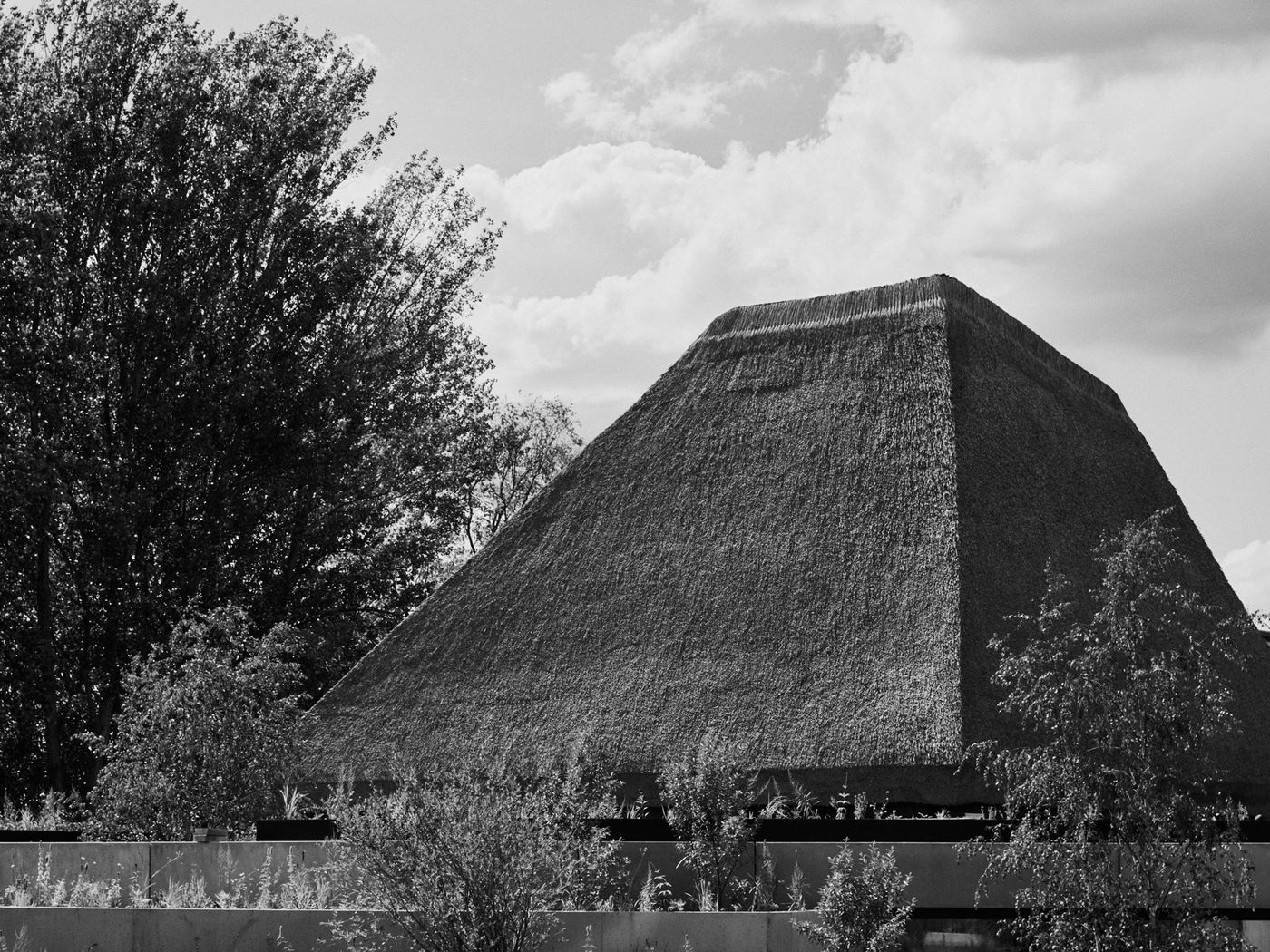
Flussbad. Berlin, Germany. © Slowness.
Slowness boasts a wide range of multi-disciplinary collaborators. How important is the idea of cross-pollination for you in terms of innovation and creativity? Does it reflect a push for a more collectivist culture?
Taking a multidisciplinary, holistic approach and enabling cross-pollination between disciplines are absolutely foundational to what we’re doing. This is something that has become increasingly clear to us. If you bring together, let’s say, a chef, a designer, a farmer, an architect, a botanist and a nutritionist who share a similar vision but very different perspectives and areas of expertise, and then encourage them to truly collaborate, the result is going to be so much richer and of a higher quality than if a project is managed top-down and these people are just called in to fulfil their specific tasks.
How did the Covid-19 pandemic affect Slowness? Did it make you reassess any aspect of your work or life?
The obvious, less interesting answer is that it slowed everything down, which is a big reason why so many of our projects are still months or even years from opening. But at the same time, the wider reassessment that so many people made during the pandemic about how they were living their lives—that they wanted to break free of their daily grind and live a more meaningful existence, slowing down and spending more time in nature—was such a profound confirmation of the direction we were already moving in.
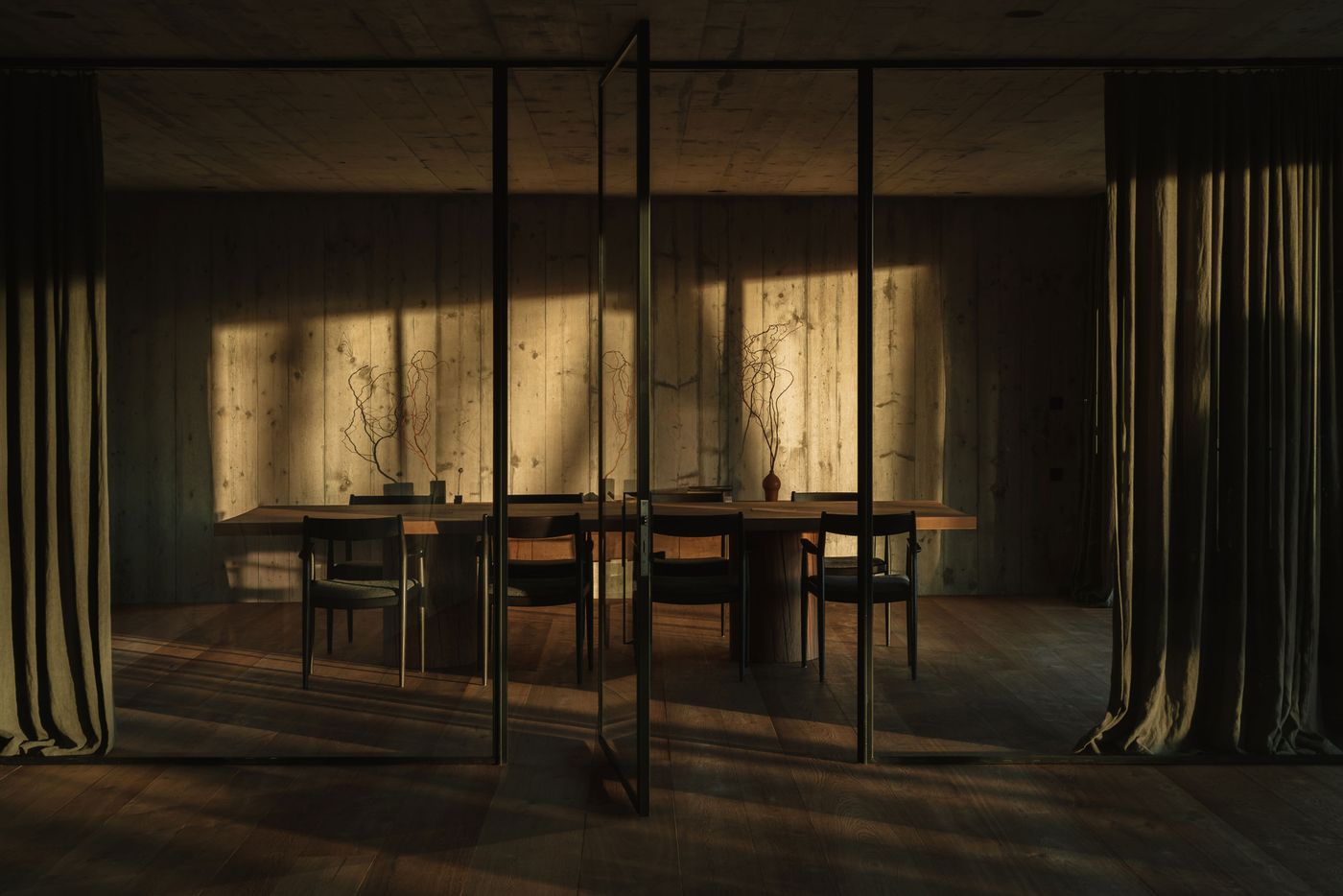
Flussbad. Berlin, Germany. © Slowness.
What kind of projects do you currently have under development? Talk us through your upcoming openings.
Next to open is Arnesse, a neo-gothic manor in the bucolic Uckermark region a two-hour drive from Berlin. The lakeside retreat will house 15 guestrooms and a destination restaurant surrounded by 20 hectares of rolling countryside.
As I mentioned, Herdade do Meco is also under development, with construction scheduled to begin next year. We actually began revitalizing the land in the spring of last year with our dedicated team of young farmers. Additionally, we launched Friends of a Farmer, a community-supported agriculture program that uses regenerative and biodynamic techniques to restore the soil, bring the farm to life, and cultivate a connected community. The program includes a weekly subscription farm box filled with fresh-from-the-field flowers and vegetables along with care instructions, nutritional guides and recipes. Visitors can participate in guided walks across the land and take part in workshops on the local flora, as well as visit our farmers markets in Lisbon’s Príncipe Real. Nearby, in the ancient Graça neighbourhood, we are developing Casa Noble [slated to open in 2025], an urban guesthouse spread across three historic buildings.
It sounds like programming and community are at the heart of your projects. How do you see this evolving in the future?
As we get further along in our development, programming will become the driver of our offerings. With that said, we’re pushing it beyond traditional programming to something closer to lifelong learning, and we believe hospitality can play a pivotal role in connecting those dots. What‘s missing in most hospitality environments are the spaces where these kinds of transformational experiences can take place. That’s why we’re developing Slowness Collective, a school for hospitality and curated platform of global travel experiences, and building spaces like the Reethaus in Berlin and the biodynamic farmstead in Arrábida. There’s a growing community that wants not just enriching, educational experiences but a cohesive metanarrative toward a healthier, happier self, which we’re building these unique physical spaces and ecosystems of culture and hospitality to answer to.

Casa Noble. Lisbon, Portugal. © Slowness.
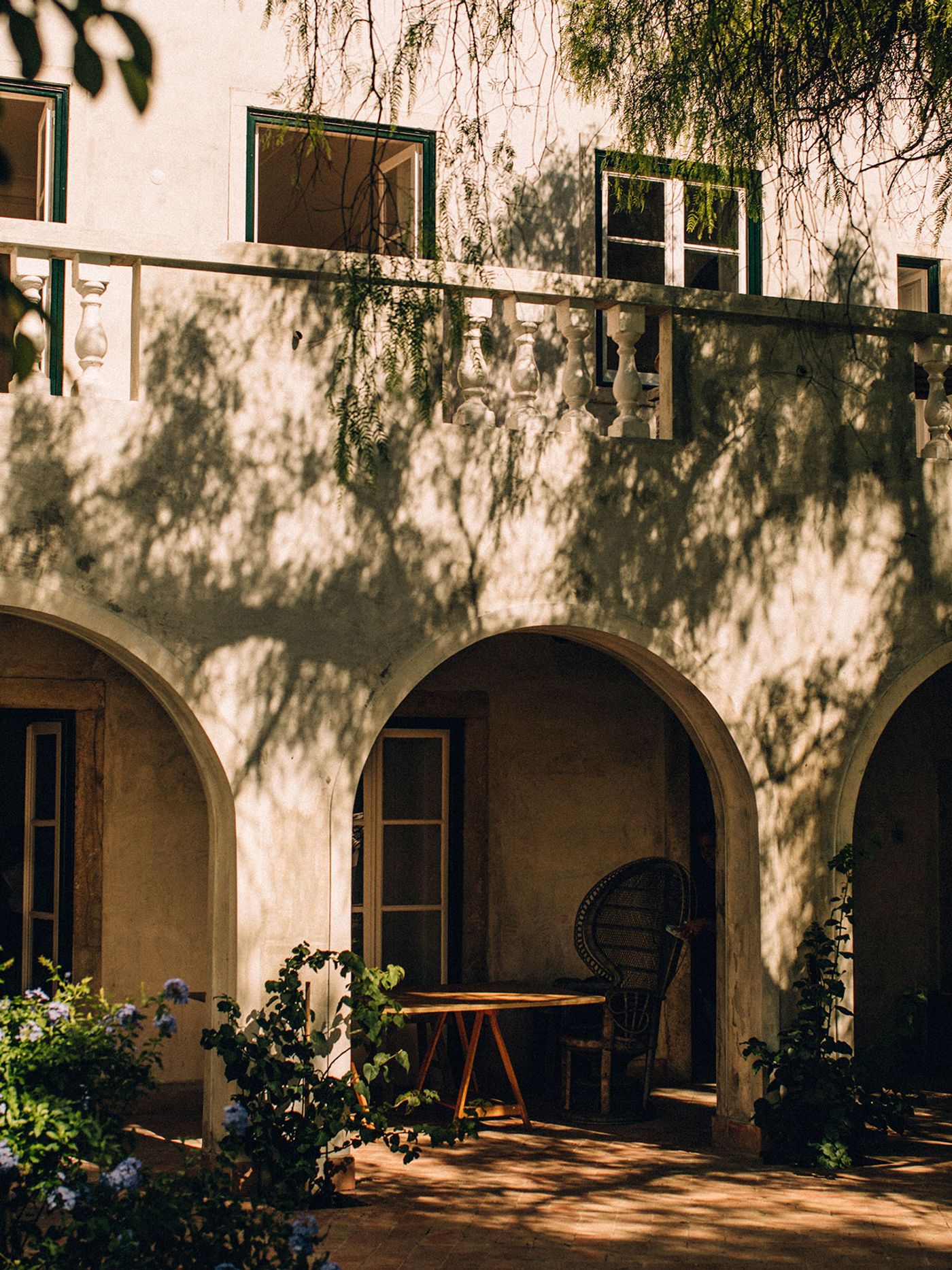
Casa Noble. Lisbon, Portugal. © Slowness.
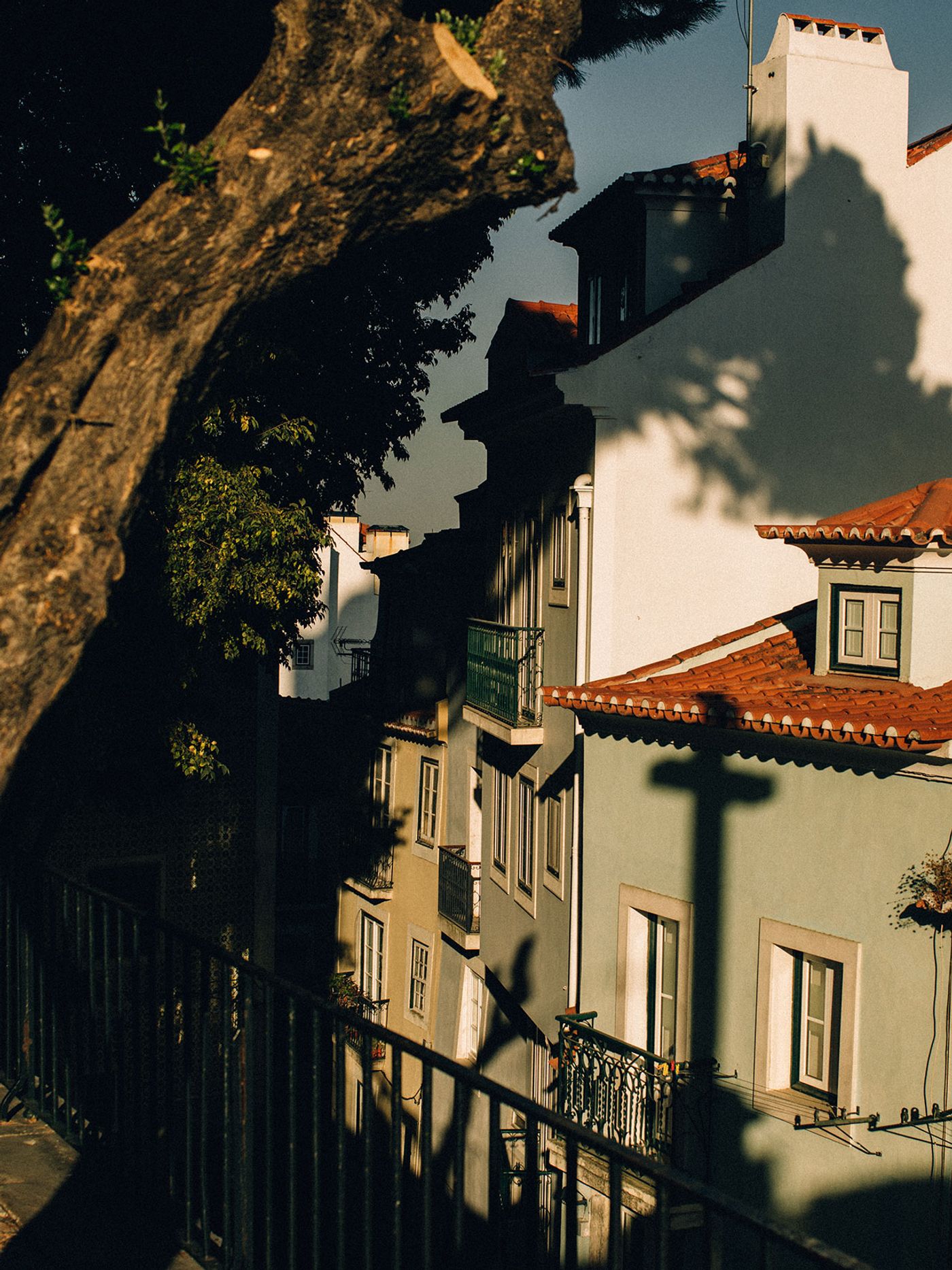
Casa Noble. Lisbon, Portugal. © Slowness.
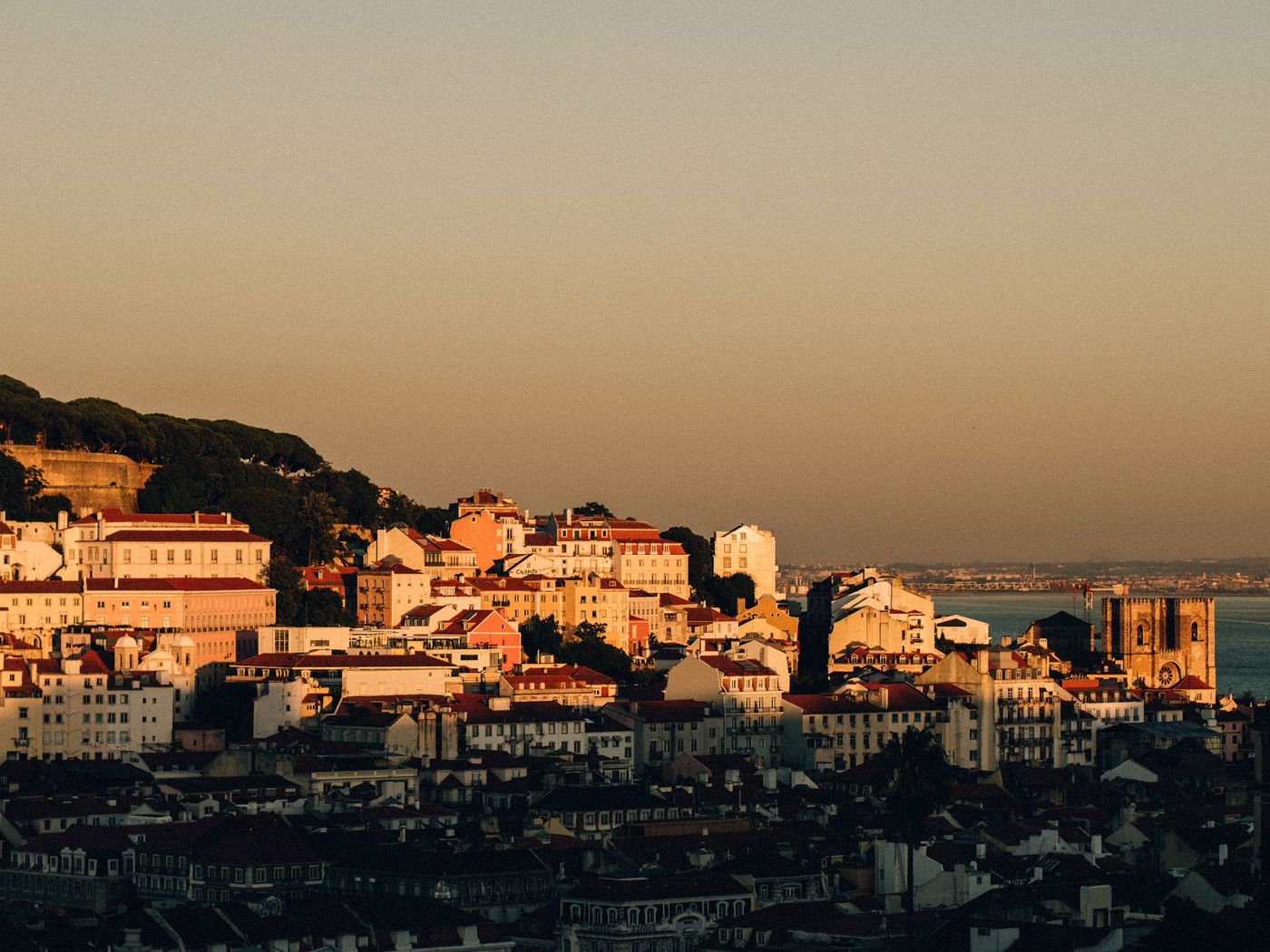
Casa Noble. Lisbon, Portugal. © Slowness.
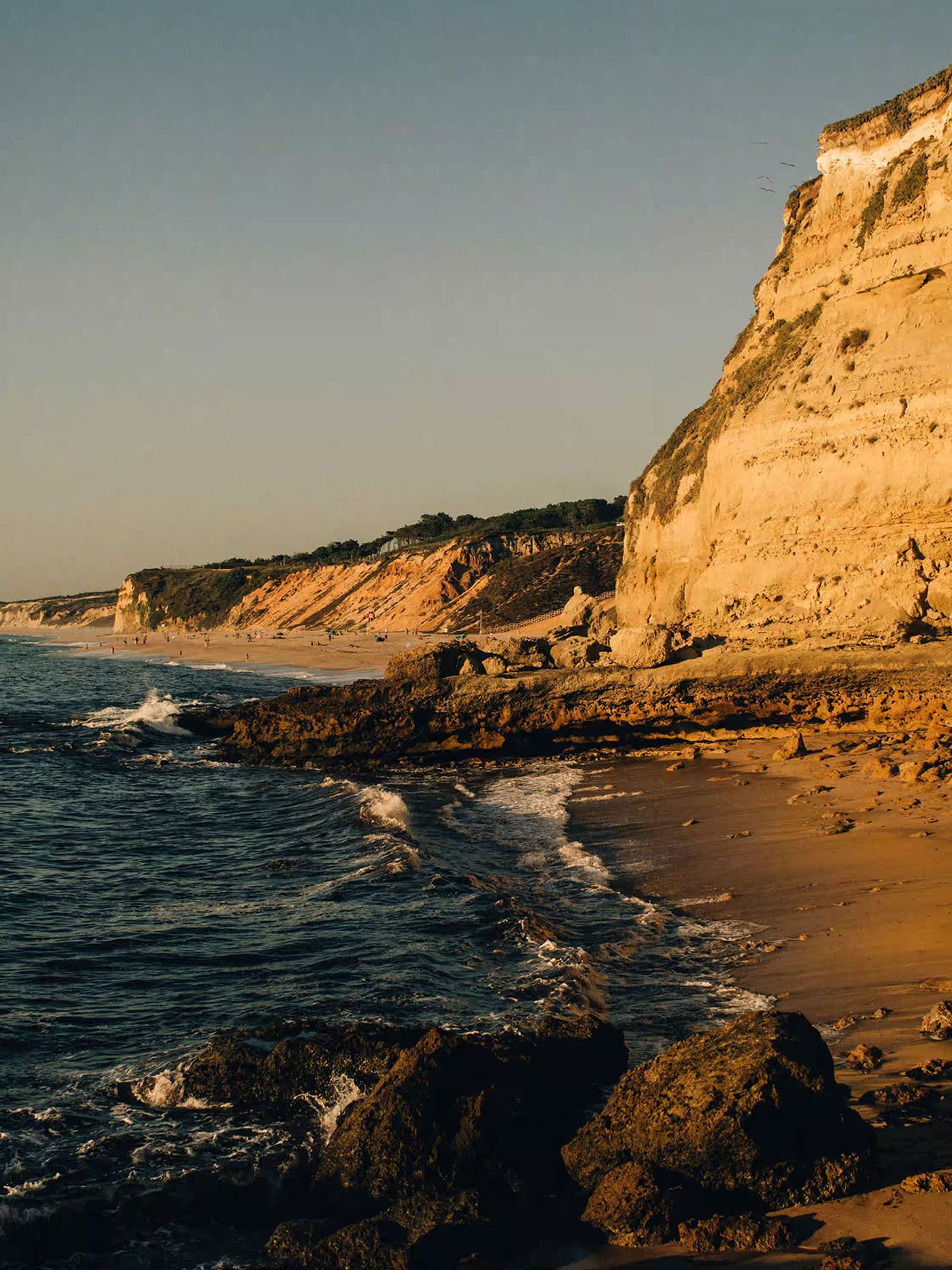
Herdade do Meco, Portugal. © Slowness.
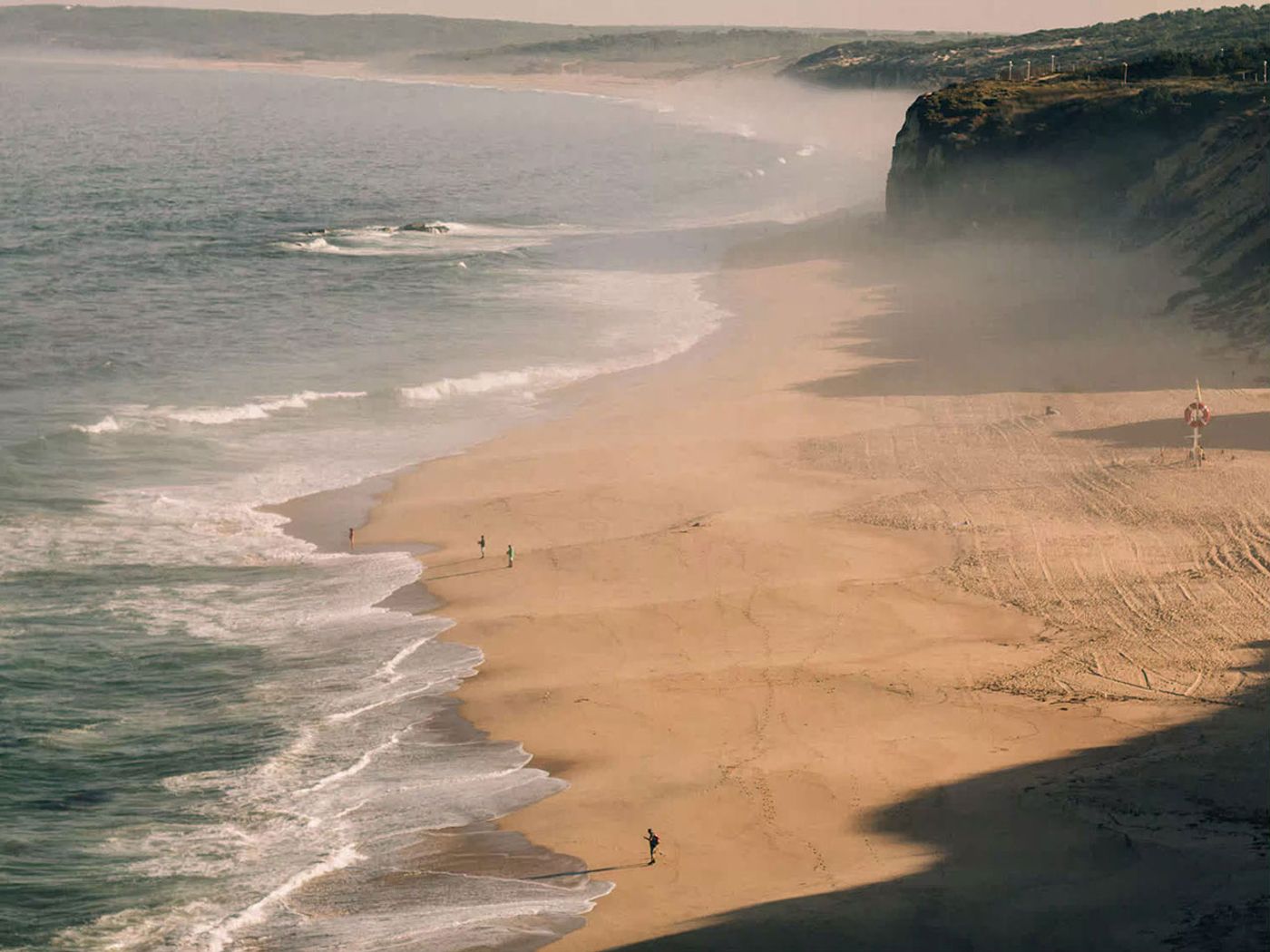
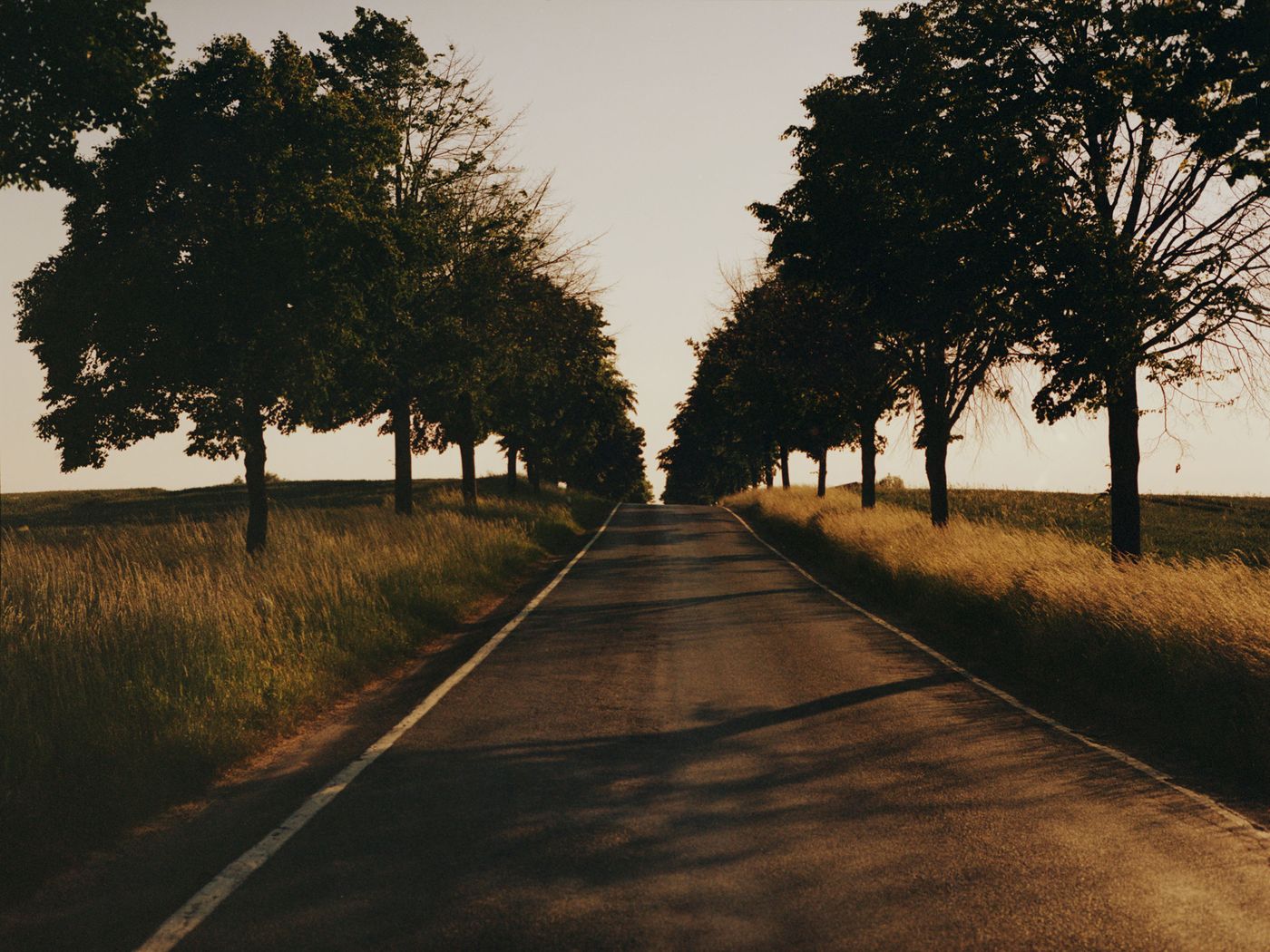
Arnesse. Uckermark, Germany. © Slowness.
